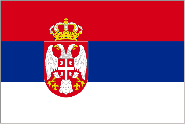Regional
Taxonomy Term List
Advancing Albania’s planning for medium and long-term adaptation through the development of a National Adaptation Planning (NAP) process
This project is designed to help the Government of Albania increase its capacity to address the country’s climate change vulnerabilities by supporting the development of a national plan for climate change adaptation. The support focuses on 1) strengthening the national mandate, strategy and steering mechanism for assessing and addressing capacity gaps (particularly in the priority sectors of tourism, urban development, agriculture, transport, and energy); 2) develop a National Adaptation Plan (NAP) Strategy action plan and implementation plan, and 3) develop financing, monitoring and evaluation strategies to ensure that capacities and funding options are institutionalized for the long-term sustainability of adaptation planning beyond the life of the project.
With financing from the Green Climate Fund, the project "Advancing Albania’s planning for medium and long-term adaptation through the development of a National Adaptation Plan (NAP) process" is supporting the Government of Albania to increase its capacity to address the country’s climate change vulnerabilities.
Albania’s primarily rural population is highly vulnerable to the effects of climate change, where extreme rain events frequently result in destructive flooding, while agricultural livelihoods and drinking water supplies are threatened during dry periods. As temperatures rise, climate scenarios predict increased severity and frequency of these extreme wet and dry conditions, along with decreasing annual rainfall. These changes place Albania’s population at risk and pose a threat among others to the hydropower and tourism industries.
To address these vulnerabilities, the Government of Albania launched its NAP process in February 2015, with the support of GIZ and UNDP, through consultations with national stakeholders and a stocktaking exercise. A preliminary roadmap for the NAP implementation was formulated and validated by representatives from the Ministry of Tourism and Environment, as well as stakeholders from the Inter-ministerial Working Group on Climate Change (IMWGCC).
The analytical exercises highlighted the existing weaknesses and demonstrated the prevailing barriers to climate change adaptation (CCA) planning in Albania. The results confirmed that to adequately address climate change vulnerabilities, Albania must overcome information gaps, vulnerability assessments, climate adaptation planning capacity weaknesses, and a lack of awareness of CCA – both at national and sub-national levels. In addition, climate change is not integrated into existing environmental and development policies or their associated budget priorities, and financing appropriations for adaptation are absent.
The underlying challenge lies in the lack of a comprehensive framework for adaptation in Albania. The National Communications provide a preliminary assessment of adaptation priorities, while a national NAP Framework Document was developed as part of the NAP preparation and stocktaking process in 2016. To leverage these preliminary activities towards climate resilience, this readiness effort aims to address the weaknesses and barriers identified in the NAP Framework Document.
In September 2021, Albania submitted its National Adaptation Plan, including a comprehensive financing strategy to the UNFCCC.
The project aims at delivering the following results under the three main outcomes:
- Strengthen legal and institutional framework and mandate for climate change adaptation work at the national level;
- Upgrade stocktaking on climate vulnerabilities, adaptation opportunities and development needs and update vulnerability analyses;
- Address adaptation related capacity gaps at national and subnational levels;
- Establish long-term adaptation capacity development methodologies to ensure ongoing skills development and increased awareness of climate change adaptation;
- Formulate NAP Strategy action plan and the accompanying communications plan;
- Promote CCA integration into existing planning and budgeting and cross-sector coordination;
- Develop NAP implementation plan;
- Establish systems to monitor NAP process and adaptation progress;
- Identify options for securing and scaling up financing for adaptation; develop a financing plan.
Project Updates
After the inception workshop in December 2021, the project, in collaboration with stakeholders, established criteria for selecting up to eight municipalities for climate change adaptation roadmaps and identified priority sectors for analysis. UNDP signed a Memorandum of Understanding with Tirana Polytechnic University and the Institute of Geosciences (IGEO) to foster cooperation.
The project also supported the development of a new legal proposal to update the mission of the IGEO to include CCA, as well as the operational manual for the Interministerial Working Group on Climate Change and a draft reporting format for the National Climate Change Committee (NCCC).
Since 2022, the project team has accelerated project implementation, making significant progress in strengthening the institutional framework and capacities for CCA planning. This involved concluding procurement services to implement activities.
Recent successes include the establishment of the NCCC and the finalization of its Operations Manual, the development of a Monitoring, Reporting, and Verification (MRV) system, and progress on legal acts related to the IGEO. Additionally, work was undertaken on climate and socio-economic data analysis, inventory of adaptation projects, capacity assessment at national and subnational levels, and training programs.
In 2023, various stakeholders were engaged and sensitized on the NAP process. Activities have included refining vulnerability and risk assessments, developing a national database for climate change scenarios and sector vulnerability assessment, compiling a regional climate change scenario report, finalizing the expanded stocktaking report organized by priority sectors, and delivering guidelines and screening tools for gender-sensitive CCA planning.
Outcome 1: Institutional and capacity gaps assessed and addressed.
Outcome 2: NAP Strategy action plan finalized and implementation plan in place.
Outcome 3: Financing strategy and monitoring and evaluation for climate change adaptation in medium – to long-term established


Readiness for the National Adaptation Plan Process in Argentina
The project supported the Government of Argentina in establishing its adaptation planning process. This involved identifying gaps, capacity building, and integrating climate change considerations across national, regional, and local levels. By doing so, the project facilitated the assessment and reduction of vulnerability to the adverse effects of climate change by integrating climate change adaptation into the country's development strategies.
The scope of the project included the preparation of the National Adaptation Plan (NAP) with a regional and multi-sectoral approach. Additionally, it involved the development of a system to monitor and assess adaptation needs and measures under the Law 27250 Minimum Standards for Adaptation and Mitigation to Climate Change (Ley de Presupuestos Mínimos de Adaptación y Mitigación al Cambio Climático). To achieve the proposed outcomes, the project developed a communication strategy on climate change adaptation, carried out a series of studies to identify adaptation options, and supported inter-sectoral and inter-jurisdictional collaboration within the framework of the National Cabinet on Climate Change (NCCC), the Federal Environment Council (COFEMA), and the National System for Comprehensive Risk Management (SINAGIR).
In recent years, Argentina has made decisive progress in planning and implementing measures to adapt to climate change. The National Communications on Climate Change have made valuable contributions, such as providing information, conducting diagnoses, and identifying various information gaps. Within the framework of the National Climate Change Cabinet (NCCC) work, several sectoral initiatives that are directly or indirectly related to climate change adaptation were identified, as well as other information and capacity needs.
This project, funded by the Green Climate Fund (GCF) NAP Readiness Programme, aimed to deepen this work by supporting National Adaptation Plan (NAP) development. This involved facilitating the evaluation and reduction of vulnerability to the adverse effects of climate change by integrating climate change adaptation into Argentina’s development strategies.
The “Readiness for the National Adaptation Plan Process” project was launched in March 2019 to support Argentina’s efforts to assess and reduce climate change vulnerability by integrating climate change adaptation into the country's sustainable development. To achieve this goal, the project aimed to build adaptive capacity and resilience. It sought to integrate climate change adaptation into both new and existing policies, programmes, activities, and development planning processes and strategies across relevant sectors at different levels.
In particular, the project supported the Government of Argentina to:
1) Establish a national process to coordinate adaptation planning at all relevant scales with a medium and long-term perspective.
2) Identify capacity gaps and strengthen capacities for adaptation planning and implementation, integrating adaptation to climate change into national, provincial, and municipal development planning processes.
3) Support the preparation of the NAP with a regional and multi-sectoral approach in the framework of the National Climate Change Cabinet.
4) Establish a system for monitoring and assessing needs and adaptation measures.
5) Design a communication strategy on adaptation to climate change, focusing on the most vulnerable populations and improving climate information services; and
6) Support inter-sectoral and inter-jurisdictional collaboration within the framework of the National Cabinet on Climate Change.
In most of non-Patagonian Argentina, the average temperature has increased up to half a degree between 1960 and 2010, with smaller increases in the center of the country. These changes have already affected natural and human systems, and according to climate projections, impacts will intensify. More frequent and intense rainfall has resulted in more frequent floods, while dry winter periods have become longer in the west and north of the country. This has adversely affected water availability for some populations, increased the risks of grassland fires, and caused livestock stress.
Argentina has committed to addressing climate change adaptation systematically and inclusively through actions and initiatives articulated in its National Adaptation Plan, its 2016 National Determined Contribution (NDC), and it’s second NDC in 2020. The NDCs and further work implemented within the framework of the National Cabinet on Climate Change detected various information gaps and sectoral initiatives that are directly or indirectly linked to climate change adaptation. The project focused on addressing these identified gaps, including establishing a baseline for the country's adaptation situation and initiating a participatory planning process.
The project goals were achieved through three main outcomes and their corresponding activities.
Outcome 1: Institutional strengthening and coordination for the formulation and implementation of the NAP process
Activities under this outcome focused on initiating the NAP process at the national level under the framework of Law 27250 and focused on strengthening governance and institutional coordination for adaptation planning. This involved developing an appropriate strategy and relevant institutional arrangements and support, such as the formalization of the External Advisory Council through consultation with representatives of civil society organizations, political parties, academia, and Indigenous people, and setting clear groundwork. The strategy outlined clear responsibilities for government ministries and departments, specified milestones and expected outputs of the NAP process, and improved coordination and cooperation mechanisms. The approach included participatory and inclusive approaches with Indigenous communities and others to identify climate risks, impacts, and subsequent mitigation strategies. This extended to the participatory formulation of the National Adaptation Plan and support for provinces in developing Subnational Response Plans. Regulatory support further strengthened the National Climate Change Cabinet, which approved the National Plan for Climate Change Adaptation and Mitigation.
Outcome 2: Awareness raising and capacity building
This outcome built capacities to reduce vulnerability to climate change and facilitate the integration of adaptation into development. A comprehensive education, awareness, and communication strategy in climate change adaptation was created encompassing various components, such as education, awareness, access to public information, citizen participation, culture, and international cooperation. A national-level social perception study facilitated the elaboration of this strategy and evaluated audience needs and preferences. Moreover, the Climate Risk Maps Platform (SIMARCC) was updated, functioning as an interactive tool that identifies climate change risks by illustrating communities and ecosystems with the highest socio-environmental vulnerability.
Training was conducted to promote the evaluation, planning, and implementation of adaptation measures. Workshops and training sessions strengthened subnational climate teams, equipping officials at that level with the necessary tools for the development of adaptation plans. Furthermore, private sector engagement was catalyzed through the launch of the Climate Action Agreement with the Private Sector. This aimed to facilitate collaboration between public and private sectors to achieve Argentina’s climate commitments through a platform for exchange and continuous training.
Outcome 3: Baseline definition; formulation of NAPs; implementation, monitoring and reviewing
Outcome 3 involved broad climate risk analyses identifying ‘adaptation deficits.’ This included vulnerability assessments at specific planning levels within the national context that can inform impactful adaptation solutions.Various studies were conducted on topics such as transport supply chains, regional economies, social vulnerability, economic impacts of climate change, health, and cultural heritage to facilitate risk analysis and identify adaptation options. The project also supported the elaboration of provincial adaptation plans by hiring individual consultants to strengthen the provincial climate teams. Risks and needs at the regional level were identified following economic loss estimates and sector-specific damage assessments.
In collaboration with provincial teams and civil society, a multi-criteria analysis tool was developed to prioritize adaptation measures within the NAP. Measures were prioritized based on their contribution to short- and long-term sustainable socioeconomic development, costs, effectiveness, and efficiency at national and subnational levels. Additionally, efforts were made to identify existing adaptation initiatives within national government areas. Moreover, a strategy for implementing and monitoring the NAP, involving priority measures, was developed. This included the design of the NAP monitoring, evaluation, and learning (MEL) system.
Outcome 1: Institutional strengthening and coordination for the formulation and implementation of the NAP process.
Outcome 2: Awareness raising and capacity building.
Outcome 3: Baseline definition, formulation of NAPs, implementation, monitoring and reviewing.
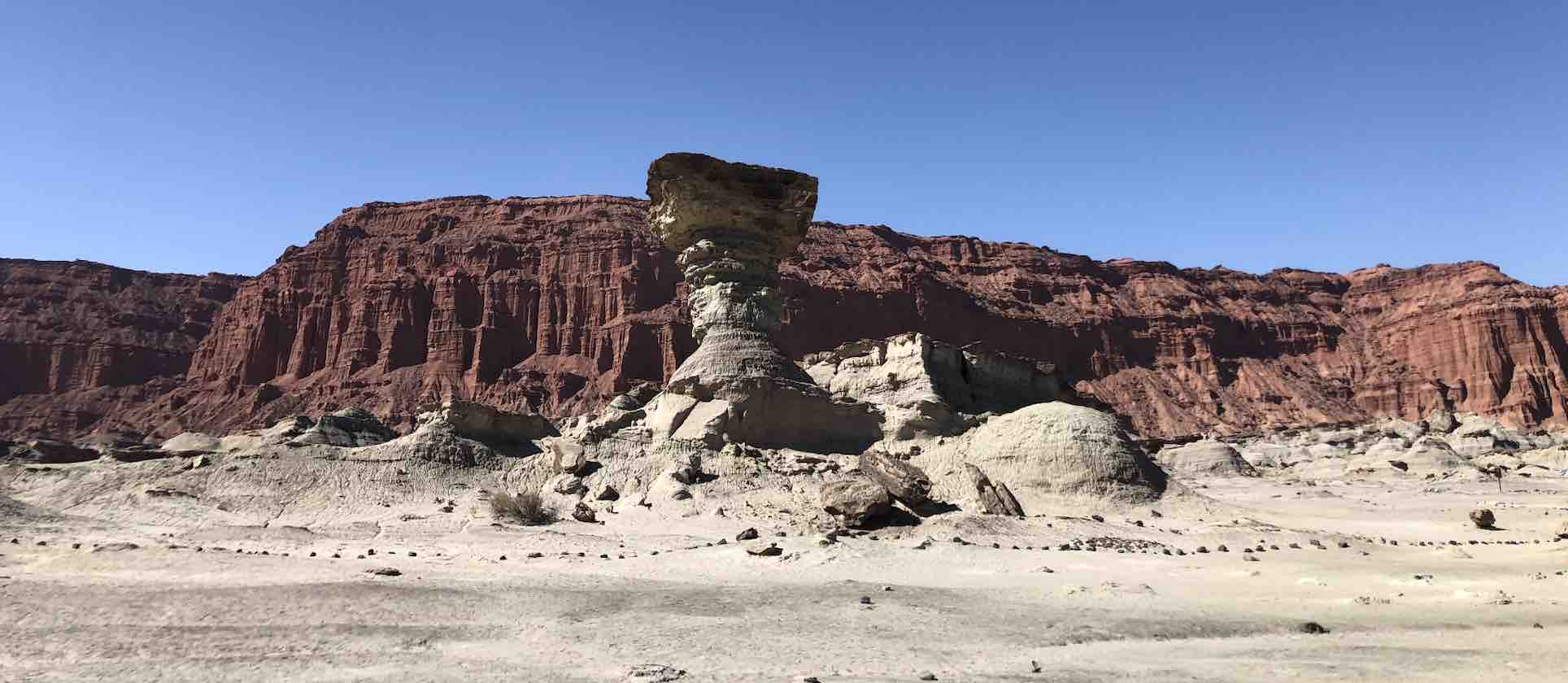
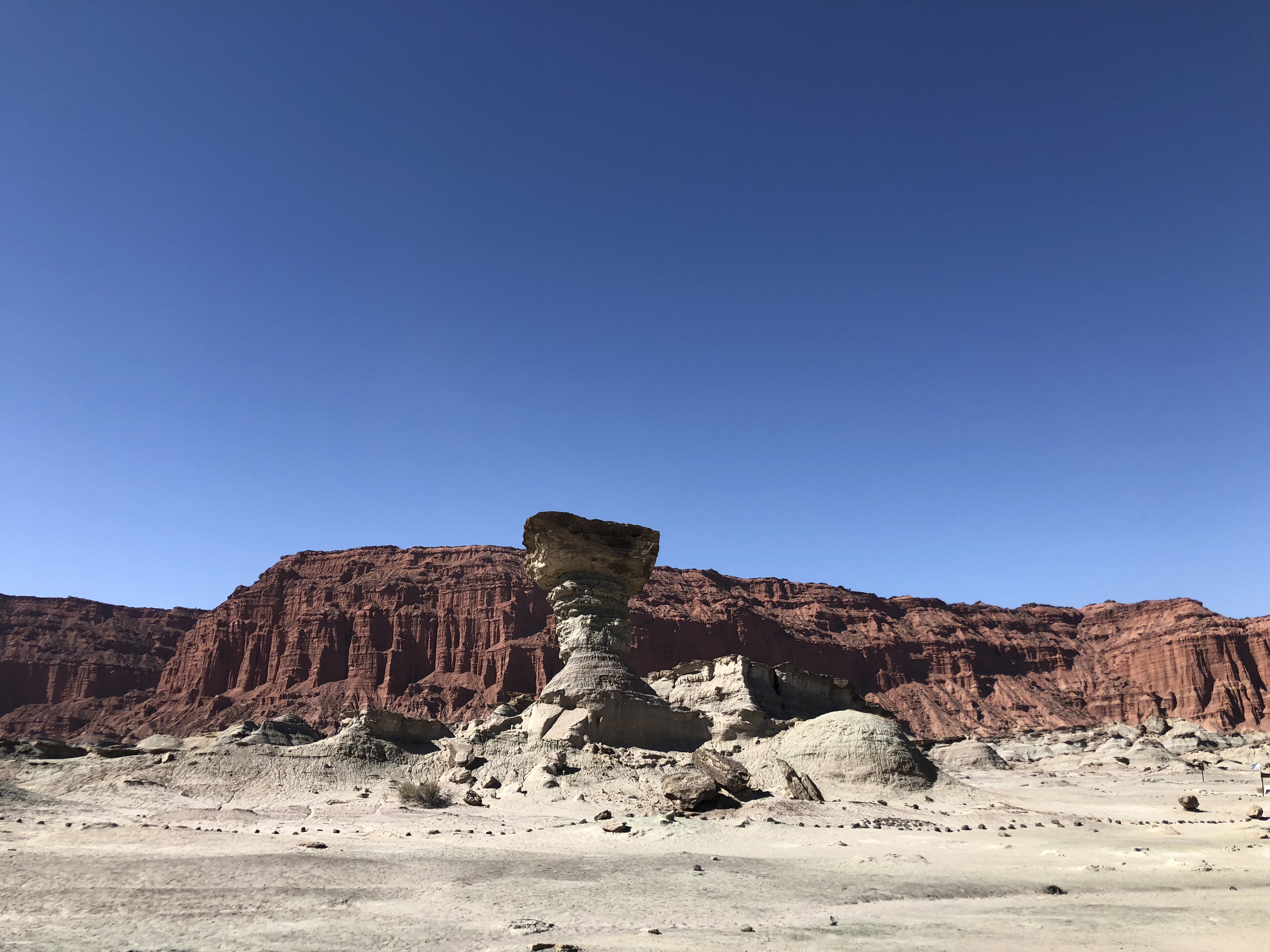
Supporting the foundations for sustainable adaptation planning and financing in Morocco
The project's goal is to support Morocco in creating a systematic framework for integrating adaptation needs into development planning. This involves establishing the foundations for sustainable finance and institutional frameworks for adaptation planning at both national and regional levels. Sub-national activities include developing regional adaptation plans for five regions: Souss Massa, Marrakech Safi, Béni Mellal-Khenifra, Draa Tafilalet and Oriental regions.
Given its geographical location, climate, and coastline, Morocco is highly vulnerable to climate change. The projected impacts by 2050 will significantly affect key productive sectors and infrastructures of the Moroccan economy. In 2022, Morocco suffered from a fourth consecutive year of low rainfall, facing a historic drought. With these structural vulnerabilities, the urgency of adaptation to climate change has become significant.
Morocco has undertaken numerous climate change adaptation and risk management projects, addressing specific issues such as water, agriculture, disaster risk, monitoring frameworks, data, and capacity building. However, these efforts have been implemented in isolation and in a fragmented manner, lacking a cohesive and interconnected approach. Moreover, climate change risks and adaptation needs have been excluded from development planning and investment decisions, particularly at the regional level.
Morocco started its national adaptation planning process in 2015 and developed a detailed NAP roadmap. Achieved in 2021, the NAP serves as a comprehensive medium- and long-term adaptation strategy, incorporating key actions and strategic objectives. The formulation of the NAP involved extensive consultations with key stakeholders and received formal endorsement from the Government.
The Moroccan Climate Change Policy and the NDC (updated in 2021) outline sectoral adaptation goals and targets and highlight critical cross-cutting pillars. The project builds upon the progress to date and helps operationalize the NAP, with a specific emphasis on the subnational level, by translating strategic objectives into tangible actions. Moreover, the project aligns with and complements other ongoing initiatives in Morocco related to adaptation and climate risk management.
In addition to the main project implementing partner, the Ministry of Energy Transition and Sustainable Development, the project works with partners in government, non-governmental organizations, and the private sector. The project seeks to create a framework for systematically integrating adaptation needs into Morocco's development planning, building upon the existing foundation for climate change adaptation. This framework will enable the implementation of high-impact adaptation measures building on strengthened institutional arrangements for adaptation planning, including strategic coherent planning instruments aligned with national priorities and sustainable sources of adaptation finance.
The project aims to design a framework for systematic integration of adaptation needs into the country’s development planning building upon the existing foundation for climate change adaptation. The expected results are grouped around the three main outcomes and include:
- setting up of coordination and governance structure for adaptation at the national and regional levels;
- strengthening national and regional M&E system;
- improving communication and awareness on adaptation planning;
- mainstreaming gender sensitivity into government’s planning processes;
- assessing climate risks and vulnerabilities for key sectors in three regions;
- identifying adaptation options, assessed and prioritized in the three selected regions;
- elaborating five regional adaptation plans;
- sustainable financing of regional adaptation plans;
- strengthened private sector engagement and investment potential.
Project updates
The project inception workshop was held in March 2022 with the participation of all project stakeholders.
Output 1.1. Regulatory text defining coordination structure and institutions mandate is in place.
A work plan and schedule for national and regional coordination bodies were created and approved, including the development of guidelines for climate information collection and for climate change risk and vulnerability assessments at the regional level for key sectors (water, agriculture, and infrastructure).
Output 1.2. National and regional Monitoring and Evaluation (M&E) system for adaptation developed.
Consultations were undertaken on building the M&E system, involving the development of climate change metrics and indicators linked to existing initiatives in Morocco. Activities have included analyzing existing systems, proposing scenarios for consolidating national platforms (MRV), drafting a guideline for gathering standardized climate information, including loss and damage data and socio-economic and gender-disaggregated data to feed into the M&E system, and assessing improvements for the Regional Information System on Environment and Sustainable Development (SIREDD).
Output 1.3. Communication and awareness to support effective adaptation planning improved.
A communication and awareness strategy was prepared and published in 2023, including the design of an adaptation repository website.
Output 1.4. Gender sensitivity is applied and addressed throughout the project life-span.
Stakeholder consultations were held in 2023, including a stocktaking of existing approaches and identifying good practices for gender integration into the project.
Output 2.1. Climate risks and vulnerabilities assessed in key sectors in 5 regions.
Consultations for mapping existing datasets and metrics were launched in 2023, accompanied by consultations for establishing guidelines and methodologies for regional-level climate change risk and vulnerability assessments in key sectors.
Output 2.2. Adaptation measures identified, assessed, and prioritized in the 5 selected.
Adaptation measures have been identified, assessed, and prioritized in five selected regions (Souss Massa, Marrakech Safi, Béni Mellal-Khenifra, Draa Tafilalet, and Oriental). Consultations related to the elaboration of regional adaptation plans for the pilot regions were held in 2023.
Output 2.3. Five regional adaptation plans formulated and integration with regional development and land-use plans facilitated.
The updated territorial climate plans (PCTs) adaptation chapter for the five pilot regions is being developed, along with a guideline for integrating PCTs into regional development and planning. Two interregional dialogues with the pilot regions are being arranged.
Output 3.1. Sustainable financing of regional adaptation plans strengthened.
Efforts to bolster sustainable financing for regional adaptation plans are in progress through consultations and activities. This includes developing an indicative project pipeline and conducting pre-feasibility studies for key adaptation priorities in each region.
Output 3.2. The private sector is strongly engaged and, its capacity to support adaptation is further enhanced.
At the national level, the House of Representatives of the Kingdom of Morocco adopted on October 18, 2022, framework law No. 03.22 forming the Investment Charter. This framework law aims to "promote private investment” to reach the rate of two-thirds of total investment by 2035, following the recommendations included in the New Development Model. This legislative breakthrough is helping to promote private-sector engagement in adaptation.
A two-day national climate investment forum was held in 2023, targeting financial institutions and private equity funds to discuss opportunities and challenges in private investments for adaptation. An assessment of the status, barriers, and opportunities for private sector investment was also undertaken.
Output 3.3. The private sector´s investment potential in adaptation is further strengthened.
The private sector's investment potential in adaptation is being strengthened through activities such as analyzing the interest, feasibility, and costs for setting up business incubators and organizing an ‘Adaptation Innovation Competition’ to encourage innovation and entrepreneurship. Additionally, an analysis of the national catastrophic risk insurance program through a public-private partnership is being conducted.
Outcome 1: The institutional framework for adaptation planning is strengthened and awareness is enhanced at national and regional levels.
Outcome 2: Regional adaptation plans (Territorial Plans against Global Warming) formulated for five vulnerable regions in Morocco and integration into regional development and land use plans facilitated.
Outcome 3: The foundations for sustainable finance for adaptation are strengthened.
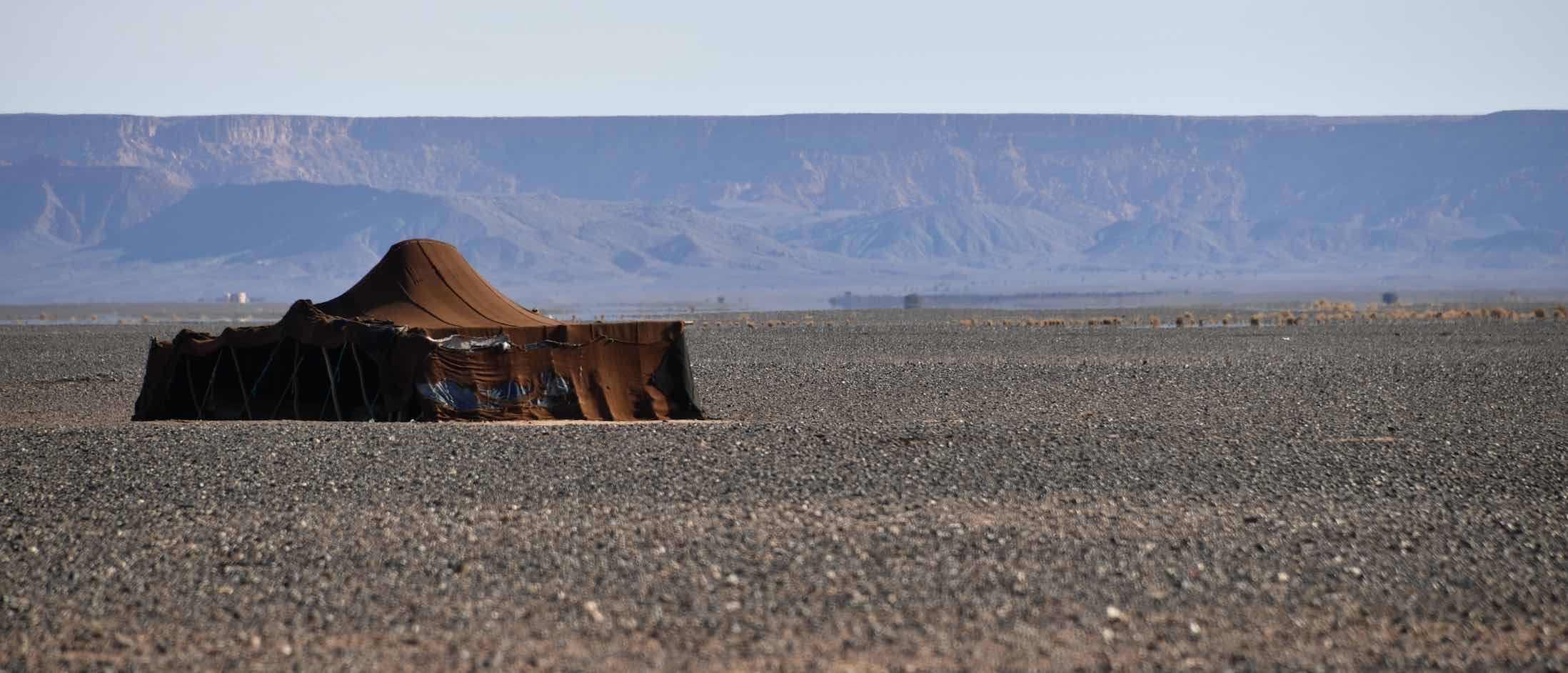
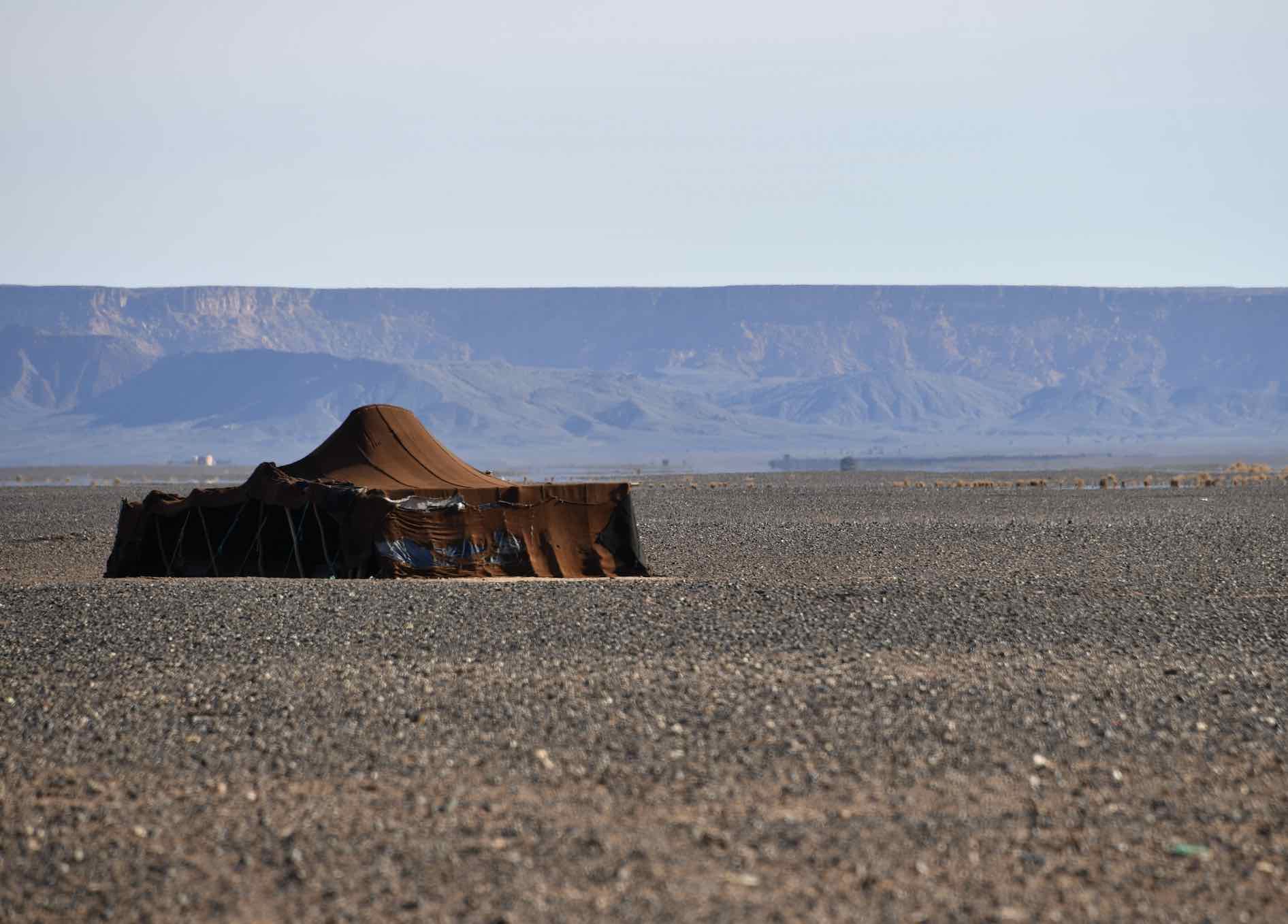
Advancing medium and long-term adaptation planning in the Republic of Serbia
The project builds on Serbia’s Nationally Determined Contributions (NDC) commitments to advance medium and long-term adaptation planning in the Republic of Serbia with a National Adaptation Plan (NAP), providing support for iterative improvements to the NDCs under the enhanced transparency framework requirements. The project aims to enable the Government of Serbia to build and strengthen capacities for mainstreaming climate change adaptation, produce actionable climate risk and vulnerability assessments, and implement effective methods, tools and information systems to better inform decision-making on climate risks. Project activities address the main barriers to the integration of climate change adaptation into national, sectorial, and local government planning and budgeting, as well as support the formulation of financing strategies and mechanisms for the scaling up of medium- and long-term adaptation.
The "Advancing medium and long-term adaptation planning in the Republic of Serbia" project aims to increase the country’s capacity to address its climate change vulnerabilities. The project is proposed in two phases and focuses particularly in the areas related to the agriculture-water management nexus, and the sectors of energy infrastructure, transport infrastructure and construction.
Climate change impacts are already evident in Serbia. The IPCC AR5 has identified southeastern Europe, where Serbia is located, among the most vulnerable regions in terms of exposure to the negative effects of climate change. Climate change is expected to have adverse effects on the intensity and frequency of floods and droughts, and on the quality and quantity of yields of major crops. Serbia’s recent history of floods and natural disasters has shown that rural low-income communities are particularly vulnerable to the impacts of climate change due to heightened water insecurity, increased health risks and reduced agricultural productivity.
The project builds on UNDP support to Serbia in February 2017 that resulted in a stocktaking report and a plan of action to advance the National Adaptation Plan (NAP) process, validated by representatives of key sectors and the Ministry of Environmental Protection. The stocktaking exercise highlighted the existing weaknesses and demonstrated the prevailing barriers to climate change adaptation and disaster risk reduction planning in Serbia. The results confirmed that to adequately address climate change vulnerabilities, Serbia must overcome its current information gaps, capacity weaknesses, as well as a general lack of awareness of climate change adaptation – both at the national and sub-national levels. The report further identified that climate change is not integrated into existing policies, or their associated budget priorities.
The overall goal of the project is to reduce climate change related risks throughout Serbia by strengthening institutional and technical capacities that support integrated climate change adaptation planning and programming. This will be achieved through three outputs and related sub-outcomes across two phases:
- In the first phase, the emphasis is given to the development and setting up of the national mandate and steering mechanism for long-term climate change adaptation and capacity building for effective development of the NAP implementation strategy. The first phase also focuses on improved management of the adaptation related knowledge and data, addressing institutional capacity gaps and needs in specific sub-sectors and at all levels of governance, establishing a system for effective monitoring and reporting on climate change adaptation measures and actions;
- Building on the results and achievements from the first phase, the second project phase will focus on capacity building for setting up a sustainable financing strategy to support medium- and long-term climate change adaptation. Both project phases will be accompanied by a NAP and adaptation engagement and communications plan and concrete measures at both national and local levels.
In addition to the implementing partner, the Ministry of Agriculture, Forestry and Water Management, other project partners include the Ministry of Environmental Protection, Ministries in charge of energy, infrastructure and construction, local self-governments, Standing Conference of Towns and Municipalities, Chambers of Commerce, civil society and others.
Project updates
- A draft National Adaptation Plan (NAP) developed;
- Introduction of a bylaw (of Law on Climate Change) that will regulate the implementation of the NAP for the country and the preparation of provincial plans;
- Introduction of an advanced university degree programme on adaptation;
- Priority adaptation interventions in all key sectors identified;
- An interactive/digital climate atlas for Serbia launched;
- “Analysis of available climate and socio-economic information” conducted, establishing the current state-of-play and steps to be undertaken to build and strengthen institutional capacities for climate change adaptation;
- “Institutional capacities for climate change adaptation” report conducted, providing an overview on existing capacities and capacity building needs at the national and local self-government levels;
- “Existing policy, regulatory and institutional framework” report conducted and recommendations on improvement of specific policy and regulatory measures for climate change adaptation prepared;
- Reports on the impacts of climate change on key economic sectors such as agriculture and water management nexus, energy sector, construction and roads infrastructure, forestry and health with recommended adaptation measures;
- Economic assessment of the damage and losses caused by climate change for local self-governments conducted;
- Recommendations for better integration of nature-based solutions into the revised NDCs for Serbia provided;
- Representatives of the line ministries and other authorities participated in trainings, online workshops and consultative meetings on climate change adaptation.
- A series of press workshops held on the topic of climate change in Serbia, involving more than 500 stakeholders, at national and local levels.
Outcome 1: National mandate and steering mechanism in place for long-term climate change adaptation
Outcome 2: NAP implementation strategy developed
Outcome 3: System to monitor progress on adaptation strengthened and financing strategy for medium- and long-term climate change adaptation established.
Webinar: “National adaptation plan (NAP) systematic and risk-shaped response to climate change” (2020)
Održan prvi Dijalog o prilagođavanju Srbije na klimatske promene (2021)
The first workshop for journalists on the topic of climate change in Serbia (2021)
Continuation of training on the topic of adaptation to climate change within the NAP project (2021)
The third training in a row on the topic of adaptation to climate change within the NAP project (2021)
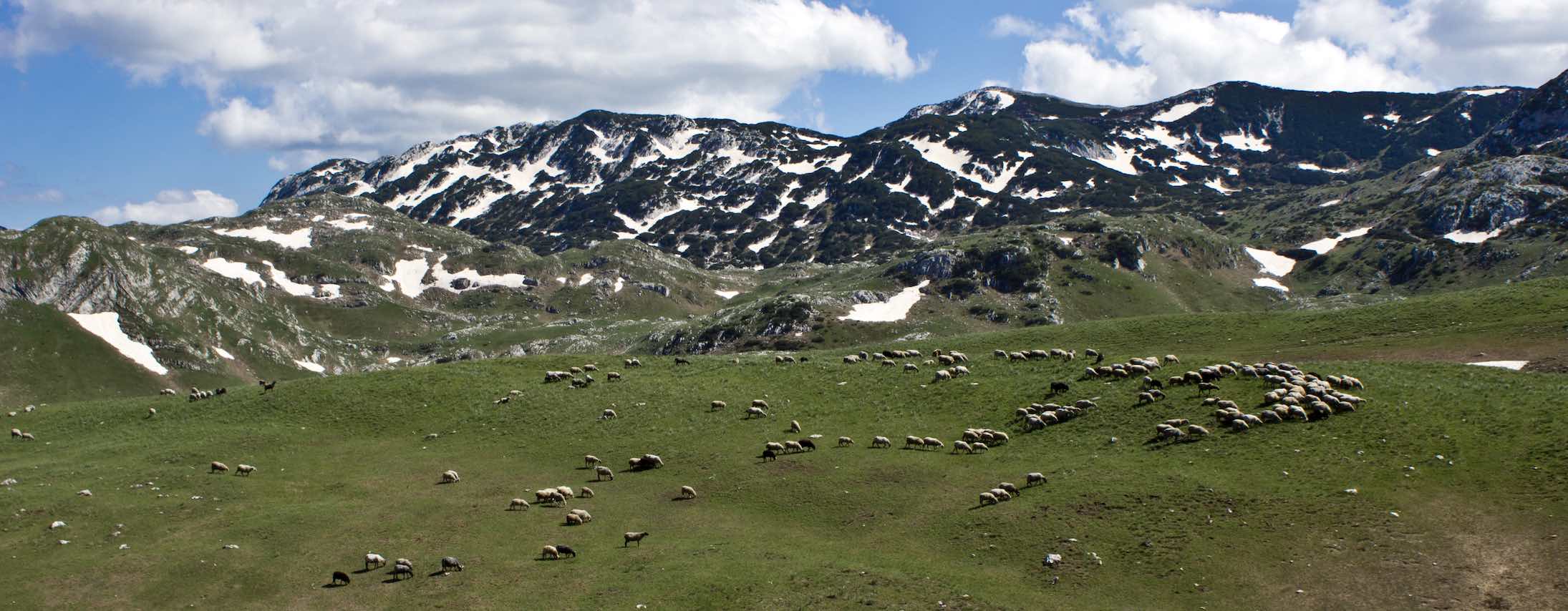
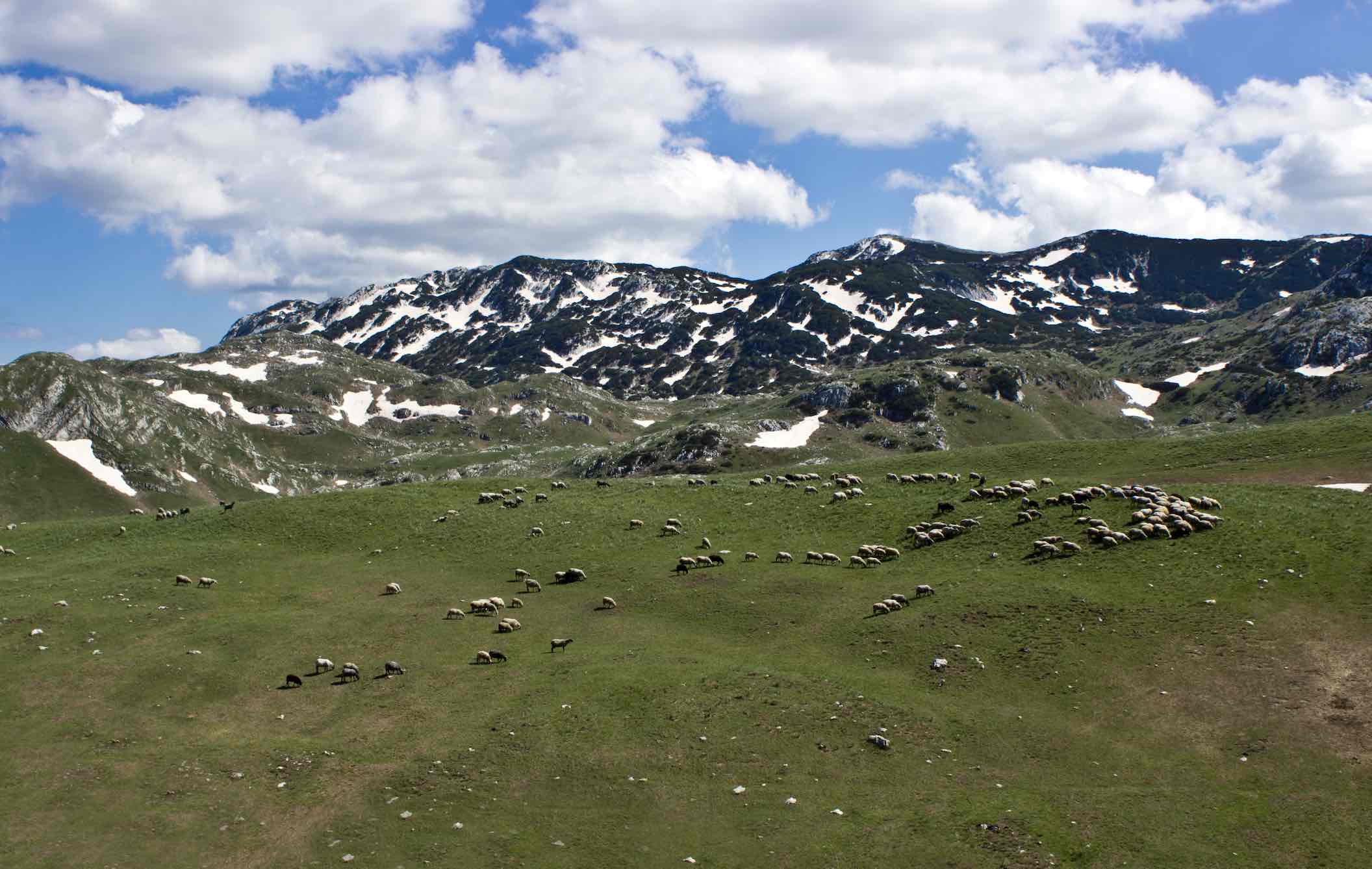
Japan Caribbean Climate Change Partnership
The Japan-Caribbean Climate Change Partnership (J-CCCP) was designed to strengthen the capacity of countries in the Caribbean to invest in climate change mitigation and adaptation technologies in a structured and prioritized manner, guided by their Nationally Appropriate Mitigation Actions (NAMAs) and National Adaptation Plans (NAPs).
Eight Caribbean countries - Belize, Dominica, Grenada, Guyana, Jamaica, Saint Lucia, St Vincent and the Grenadines, and Suriname - were supported in advancing the process of low-emission risk-resilient development by improving energy security and integrating into medium to long-term planning for adaptation to climate change.
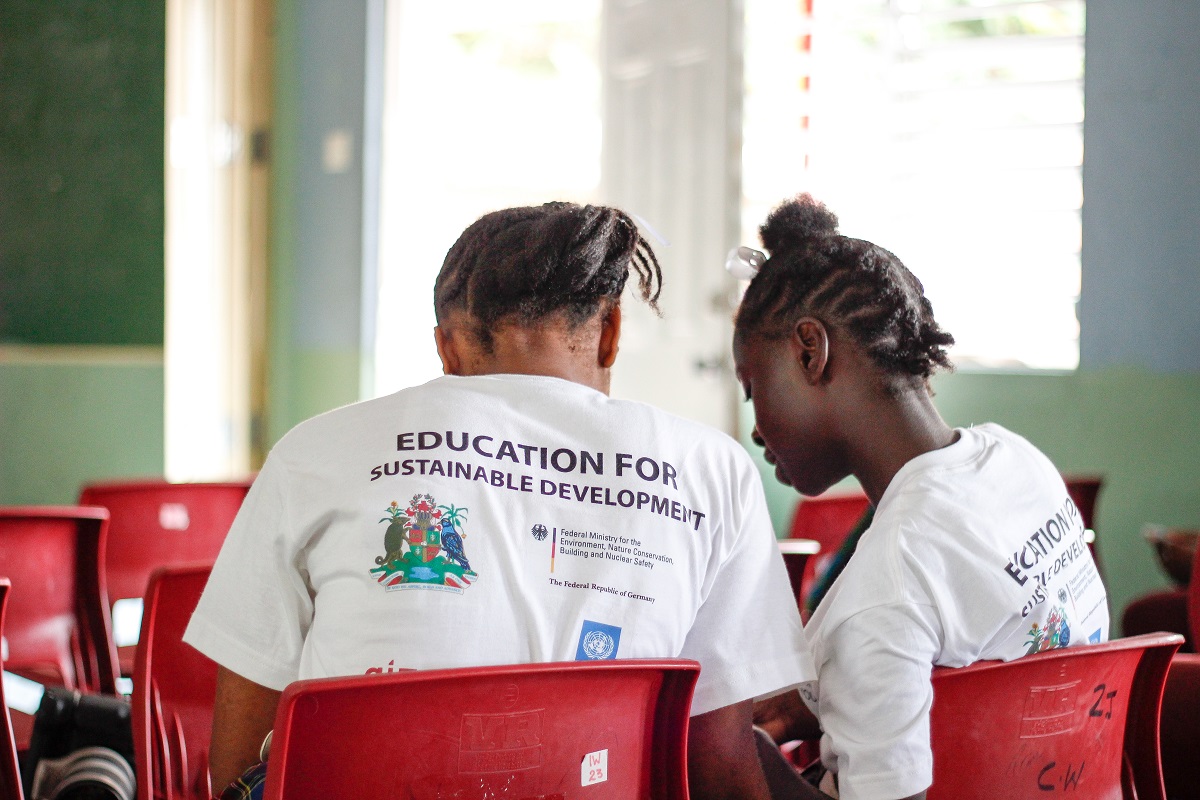
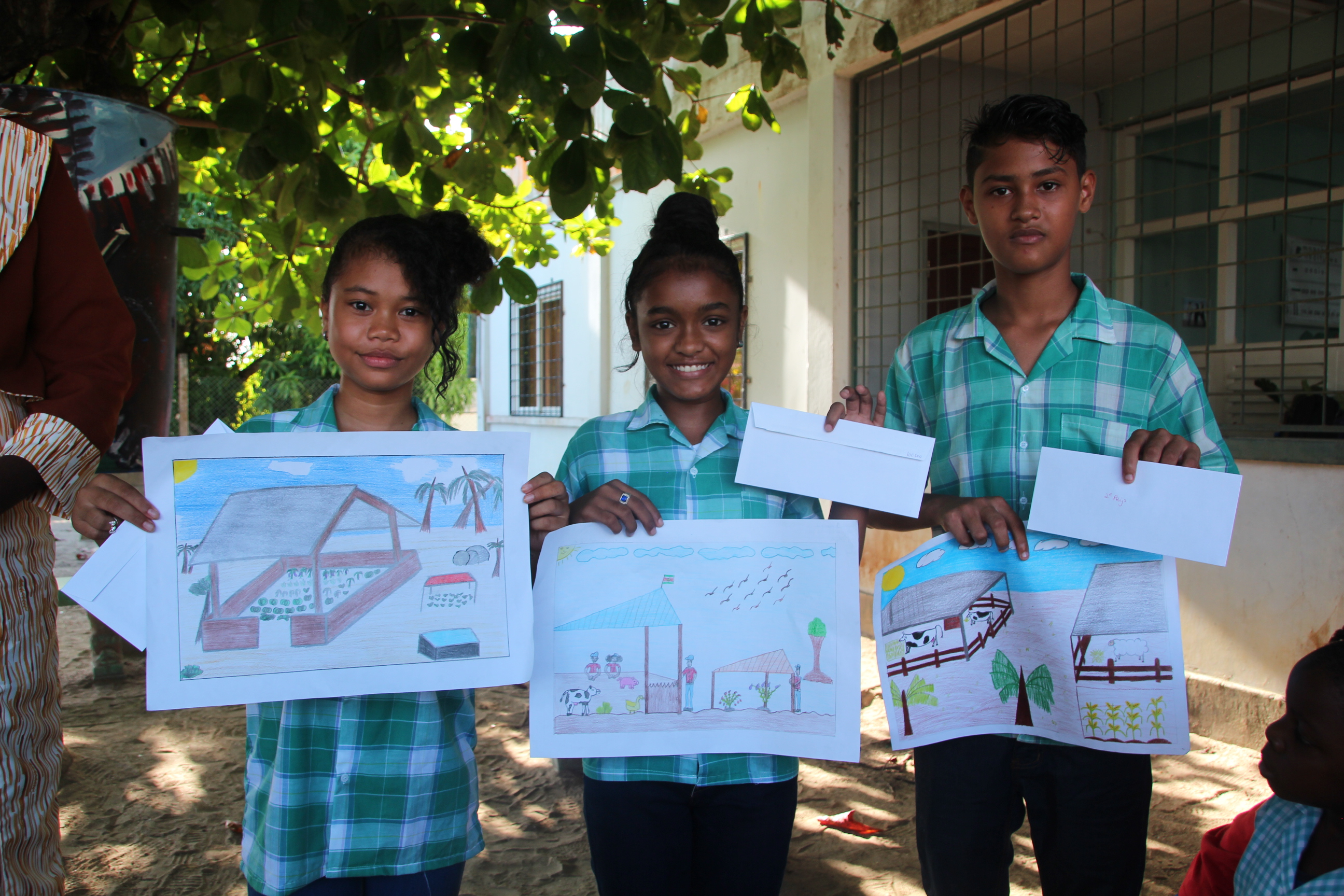

Manual
Climate Change Capacity Building for Media Practitioners Workshop Manual
Reports
Capacity Building for Media Practitioners (Media Training) - Final Report
Potential Study on Producible Bio-gas and Renewable Energy from Biomass and Organic Waste in Belize
Climate Change Knowledge, Attitudes and Practices Study - Suriname, 2016
Climate Change Knowledge, Attitudes and Practices Study - St. Lucia, 2016
Climate Change Knowledge, Attitudes and Practices Study - St. Vincent and the Grenadines, 2017
Climate Change Knowledge, Attitudes and Practices Study - Jamaica, 2016
Climate Change Knowledge, Attitudes and Practices Study - Guyana, 2016
Climate Change Knowledge, Attitudes and Practices Study - Grenada, 2016
Climate Change Knowledge, Attitudes and Practices Study - Dominica, 2016
Climate Change Knowledge, Attitudes and Practices Study - Belize, 2016
Case Study
Case Study - Transfer of Agrotechnology from Japan to the Caribbean
Case Study - Saint Lucia's National Adaptation Plan (NAP)
Quarterly Updates
Training & Tools
Plans and policies of relevance to NAPs for Non-Least Developed Countries (non-LDCs)
Saint Lucia's Sectoral Adaptation Strategy and Action Plan for the Water Sector (Water SASAP) 2018-2028
Monitoring and Evaluation Plan of Saint Lucia's National Adaptation Planning Process
Presentation
RETScreen: Project Evaluation Tool Presentation - SBL Training, Oct. 2017
Tool to Calculate the Emission Factor for an Electric System (Grid Tool) Presentation - SBL Training, Oct. 2017
Clean Development Mechanism (CDM) and Climate Finance Presentation - SBL Training, Oct. 2017
National Adaptation Plan of Saint Vincent and the Grenadines - NAP Assembly, Apr.2018
Supporting Regional Climate Action to CCCCC International Conference Presentation, Oct.2017
Media Training Workshop - Climate Myths and Realities Presentation, Apr.2017
Media Training Workshop - Digital Tools for Storytelling Presentation, Apr.2017
Media Training Workshop - Getting Climate Change on the Front Page Presentation, Apr.2017
Media Training Workshop - Climate Change and the Caribbean Presentation, Apr.2017
NAP Stakeholder Consultation (Suriname) - Institutional and Organization Considerations for a National Climate Institute Presentation, Mar.2017
NAP Stakeholder Consultation (Suriname) - NAP Process and Gap Assessment Presentation, Mar.2017
NAP Stakeholder Consultation (Suriname) - University of Suriname Climate Change Institute Presentation, Mar.2017
NAP Stakeholder Consultation (Suriname) - NIMOS Climate Change Institute Presentation, Mar.2017
NAMA Stakeholder Consultation (St. Lucia) - Green Schools NAMA Presentation, Feb.2017
Training seminar of Climate Mitigation Actions (Belize) - Modernizing the Transport Sector Stakeholder Presentation, Sep.2016
Training seminar of Climate Mitigation Action (Guyana) - Guyana's Office of Climate Change - NDCs Presentation, Sep.2016
Training seminar of Climate Mitigation Action (Guyana) - Forest NAMA Stakeholder Presentation, Sep.2016
Training seminar of Climate Mitigation Action (Guyana) - Guyana Energy Agency Existing Initiatives Presentation, Sep.2016
Training seminar of Climate Mitigation Action - UNDP LECB - NAMAs as Vehicles to Implement NDCs Presentation, Jun.2016
Training seminar of Climate Mitigation Action - UNFCCC - the Paris Agreement Presentation, Jun.2016
Training seminar of Climate Mitigation Action (Suriname) (Dutch) - Government of Suriname - INDCs Presentation, Jun.2016
Training seminar of Climate Mitigation Action (Suriname) - Government of Suriname - A Carbon Zero Future Presentation, Jun.2016
Training seminar of Climate Mitigation Action (St. Lucia) - Government of St. Lucia - St. Lucia's Nationally Determined Contribution Presentation, Jun.2016
Training seminar for Climate Mitigation Action (St.Lucia) - Government of St. Lucia - National Context for Mitigation Action Presentation, Jun.2016
Training seminar for Climate Mitigation Action (St.Lucia) - Government of St. Lucia - NAMA for Transport Presentation, Jun.2016
Training seminar of Climate Mitigation Action (St.Lucia) - Government of St. Lucia - NAMA for Energy Presentation, Jun.2016
Training seminar of Climate Mitigation Action (Grenada)-Government of Grenada- Energy Conservation and Energy Efficient Projects Presentation, Jun.2016
J-CCCP Inception Workshop - UNDP RBLAC Presentation on Regional Project Management
J-CCCP Inception Workshop- Presentation on Monitoring and Evaluation
J-CCCP Inception Workshop- Communications Associate Presentation (Outcome 3)
J-CCCP Inception Workshop- Technical Specialist Presentation (Outcome 1)
J-CCCP Inception Workshop- Technical Specialist Presentation (Outcome 2)
J-CCCP Inception Workshop - Meister Consultants Group Presentation
Assessments and Background Documents
Project Brief / Fact Sheet
Suriname - Climate Resilient Access to Drinking Water for the Maroon Community Pilot Project
Suriname - Encouraging the Early Warning System and Disaster Response Mechanism Pilot Project
Suriname - Encouraging Children's Homes to Grow Crops and Fish for Food Security and Resilience Pilot Project
Suriname - Education on Simple Sustainable Agriculture Methods at Selected Primary Schools Pilot Project
Suriname - Enhancing Access to Drinking Water for the Maroon Community Pilot Project
Suriname - Women Empowerment & Renewable Solar Energy Pilot Project
Guyana - Improved Access to Water in Drought-Prone Rural Communities Pilot Project
Guyana - Solar-Photovoltaic (PV) Systems and Energy Efficient Streetlights in Bartica Pilot Project
Dominica - Alternate Water Harvesting and Storage Pilot Project
Dominica - Promoting Climate Smart Agriculture Pilot Project
Dominica - Improving Seasonality and Diversity of Vegetable Production Pilot Project
Dominica - Enhancement of the Morne Rachette Emergency Centre Pilot Project
St. Lucia - Building Resilience of the Honey Sector Pilot Project
St. Lucia - Promoting Aquaponics as a Farming Approach Pilot Project
Grenada - Community Cistern Refurbishment Pilot Project
Grenada - Climate Change and Weather Variations Pilot Project
Belize - Sustainable Agriculture in Climate Smart Landscapes Pilot Project
Jamaica - Water Harvesting Infrastructure in Clarendon Pilot Project
Jamaica - Climate Resilient Technologies in Rural Farming Communities Pilot Project
St. Vincent and the Grenadines - Building Resilience in the Co-operative Sector Pilot Project
St. Vincent and the Grenadines - Slope Stabilization and Road Improvement Pilot Project
St. Vincent and the Grenadines - Increasing Water Storage Capacity on Mayreau Pilot Project
St. Vincent and the Grenadines - Strengthening Community Resilience Pilot Project
St. Vincent and the Grenadines - Sustainable Model Garden Pilot Project
St. Vincent and the Grenadines - Climate Change Adaptation Project for Livestock Production Pilot Project
St. Vincent and the Grenadines - Promoting the Adoption of Climate Smart Agriculture Practices among Small-Scale Producers Pilot Project
St. Vincent and the Grenadines - Irrigation Capacity Improvement to Improve Climate Resilience among Small Farmers Pilot Project
Japan-Caribbean Climate Change Partnership Project Brief
Communications Products
'Beat the Clock' Campaign Poster - Ten years from now... (Grenada)
'Beat the Clock' Campaign Poster - The time to act is now (Grenada)
'Beat the Clock' Campaign Poster - We were here (Grenada)
'Beat the Clock' Campaign Poster - This is one change we can't afford (Grenada)
'Beat the Clock' Campaign Poster - 10 years from now... (Dominica)
'Beat the Clock' Campaign Poster - The time to act is now (Dominica)
'Beat the Clock' Campaign Poster - We were here (Dominica)
'Beat the Clock' Campaign Poster - This is one change we can't afford (Dominica)
ProDocs
Japan-Caribbean Climate Change Partnership Project Document
|
|
Please also view the Project's Mid-term Evaluation Report.
Over the course of three days, J-CCCP mounted a multi-media gallery to showcase the impact of J-CCCP's work over the project lifetime. The day prior, the project visited J-CCCP pilot projects in Saint Lucia where technology or knowledge from Japan has been transfered.
Agricultural Knowledge-sharing Event
J-CCCP invited farmers, agricultural practitioners, regional agencies and NGOs who work in agriculture to join nature farming and research experts from Japan to knowledge share. This event builds on the 19 agriculture-focused pilot projects implemented by J-CCCP and the study tour to Japan, completed in 2018.
UNDP's J-CCCP is supporting the attendance of 11 youth who have played key roles in advancing climate action in the region. Their participation builds on the 2017 Youth Climate Change Conference. Now, many of these youth have come together to create a NGO - Youth Climate Change Activists where they actively advocate for increased action among peers and decision makers.
Over thirty representatives from nine Caribbean countries met in Kingstown, St. Vincent and the Grenadines to better position themselves to access funding for climate change mitigation.
NAP Workshops in Belize and Guyana
Stakeholders, government representatives and development partners recently gathered to take Belize and Guyana one step closer to the finalization of their National Adaptation Plans (NAPs).
NAP Donor Symposium and Peer Learning
Representatives of the Governments of Saint Lucia and St. Vincent and the Grenadines gathered at UN House in Barbados to present their National Adaption Plans (NAPs) and priorities to members of the donor community who are active in the Caribbean. The following day, they were joined by colleagues from Jamaica and Grenada where they had the opportunity to share ideas, experiences and lessons learned surrounding their NAP process.
More than 100 climate scientists, researchers and negotiators from across the Caribbean and the world gathered at the Hilton Hotel in Port-of-Spain, Trinidad from October 9 to 12, 2017, to highlight the region’s climate change adaptation successes at the Caribbean Community Climate Change Centre (CCCCC) International Conference on Climate Change for the Caribbean.
Youth Climate Change Conference 2017
Caribbean and Japanese youth have put forward their recommendations for climate-smart actions for the region following two days of intense dialogue between October 10-11, 2017 at the third staging of the Youth Climate Change Conference at the Jamaica Conference Centre.
National Adaptation Plan Workshop for Latin America and the Caribbean
Representatives from twenty-six countries in the Latin America and Caribbean countries attended the regional workshop on national adaptation plans (NAPs), held in San Jose, Costa Rica, from 4 to 7 September, 2017.
Capacity Development for Media Practitioners
J-CCCP provided climate change training to more than 30 journalists from across the region. The two-day training seminar enabled media practitioners to learn and share best practices on climate change issues including, climate change science, economics and policy as well as the role of media entities in communicating on climate change.
Consultation for the Development of a Transportation NAMA in St. Vincent and the Grenadines
As St. Vincent and the Grenadines pursues the development of a Nationally Appropriate Mitigation Action (NAMA) in the transportation sector, stakeholders gathered to consult on the process.
Presentation of KAP Study Results and Campaign Brainstorming in St. Vincent and the Grenadines
Stakeholders, some of whom took part in data collection for the study, gathered to hear the results of a knowledge, attitudes and practices study conducted in St. Vincent and the Grenadines in December, 2016. Participants also assisted with the development of campaign approaches and committed to supporting campaign implementation.
Development of Belize's National Communication Strategy for Climate Change
J-CCCP supported the National Climate Change Office of Belize in the development of a national communications plan for climate change. This support was in the form of a workshop where stakeholders from key sectors across the country fed into the development of the plan.
Caribbean Climate Change Coordination Seminar
In April 2016, representatives from regional organisations gathered in St. Lucia to map synergies and actions between development partners and the Project relating to NAPs, NAMAs and knowledge management and communications. Organisations in attendance included: CARDI, CARICOM, CEDMA, CCCCC, CYEN, CIMH, CARPHA, and PANOS, among others. For NAP and NAMA development and pilot projects, organisations were asked to identify stages at which each organisation may be able to lend support based on their expertise, the specific nature of the assistance and how additional funding could be leveraged. Participants also contributed to plans under outcome 3, including policy events, study tours and campaigns and noted that the exercise was useful in order to break a trend of working in silos.-NAMA training
Training Seminar on the Development and Implementation of Climate Mitigation Actions
J-CCCP partnered with the United Nations Framework Convention on Climate Change Regional Collaboration Centre (UNFCCC RCC), the UNDP Low Emission Capacity Building (LECB) Programme and local Ministries in the months of June and September to conduct two-day training seminars in Belize, Grenada, Guyana, St. Lucia, St. Vincent and the Grenadines and Suriname. The seminars were designed to support the development of climate mitigation actions, including Nationally Appropriate Mitigation Actions (NAMAs). Approximately two hundred persons were trained in total.
National Adaptation Plans Regional Workshop for the Caribbean
Representatives from 10 Caribbean countries, including J-CCCP’s 8 beneficiary countries, met in Grenada’s capital of St. Georges to discuss strategies to prepare for the impact of climate change. Following Grenada’s final consultation on its National Adaptation Plan (NAP), they were able to share lessons from their experience of national adaptation planning, including some key topics such as political buy-in, coordination, integration of the sectoral plan, climate finance with peers through this two-day event. The NAP Assembly was co-hosted by Grenada’s Ministry of Education, Human Resource Development and the Environment; the UNDP Japan-Caribbean Climate Change Partnership (J-CCCP); and the NAP Global Network.
National Communication Strategy Development Workshop - Belize
J-CCCP supported the National Climate Change Office of Belize in the development of a country-wide communications strategy. This workshop saw Communications Professionals from Belizean Ministries, CBOs, NGOs and the media gather to have inputs into the strategy. The Project will focus its efforts on implementing the initial stage of the strategy with support from other local stakeholders.
Project Wrap-Up
Belize & Guyana Initiate NAP Process
J-CCCP Pilot Project Launched in The Grenadines
J-CCCP Partners with the Belize National Climate Change Office to Launch Feel the Change Campaign
J-CCCP Supports Study on Biogas and Renewable Energy from Biomass and Organic Waste in Belize
November, 2016
J-CCCP Supports COP 21 & 22 Panel Discussion at the Caribbean Renewable Energy Forum 2016
June, 2016
UNDP and UNFCCC Initiates Training Seminars for Climate Mitigation Actions in the Caribbean
January, 2016
Japan and UNDP kick start US$15 million Caribbean Climate Change Project
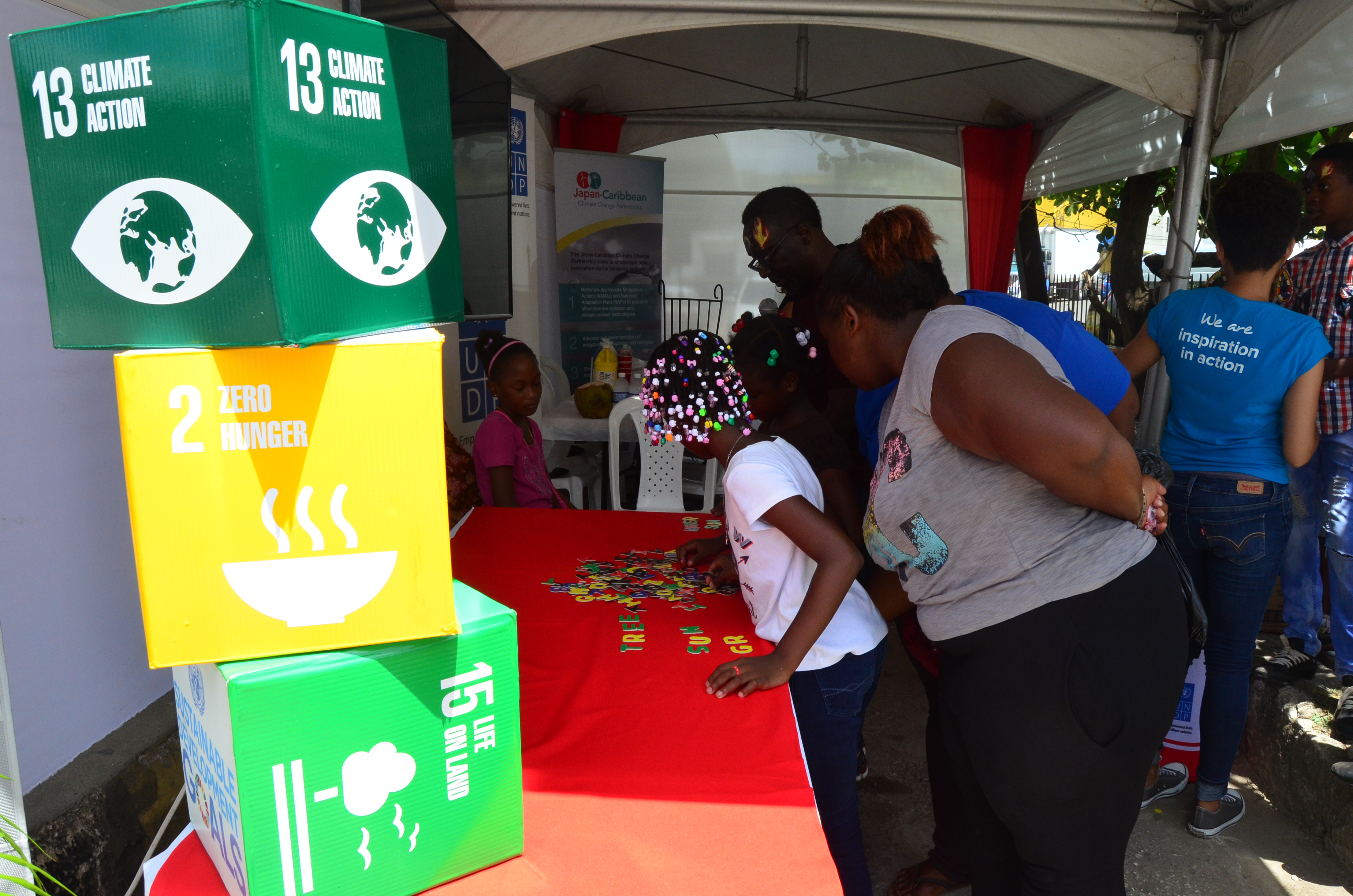

Programme on Climate Information for Resilient Development in Africa (CIRDA)
Climate stresses and low adaptive capacity are increasing Africa´s vulnerability to climate change. Climate related shocks to the economy, vulnerable populations, ecosystems and infrastructure threaten development goals and poverty alleviation strategies. The ability of decision-makers to understand and communicate the likely impacts of climate change is of critical importance in adapting development plans to new climate realities. However, the lack of access to reliable climate information and the lack of capacity of disseminating it prove to be significant obstacles in allowing governments and populations to develop the correct tools to address the changes that will be brought on as a result of climate change.
The Programme on Climate Information for Resilient Development in Africa (CIRDA) sought to enable vulnerable countries in Africa (Benin, Burkina Faso, Liberia, Sierra Leone, Sao Tome and Principe, Ethiopia, the Gambia, Uganda, Tanzania, Malawi and Zambia) to strengthen national climate information systems, as well as to benefit from regional coordination and draw upon a platform of knowledge management.
The programme coordinated among different stakeholders needs and capacities in collecting, generating, analysing and disseminating relevant climate information. It also provided capacity-building on: meteorological, climate and hydrological observing and forecasting systems, disaster risk management and viable communication systems/processes for disseminating alerts, and the use of alternative cost-effective technologies. The Programme will provide special consideration on reaching end user populations such as farmers as well as strategies to engage with the private sector as a service provider and as an end user of climate information.
CIRDA Blog
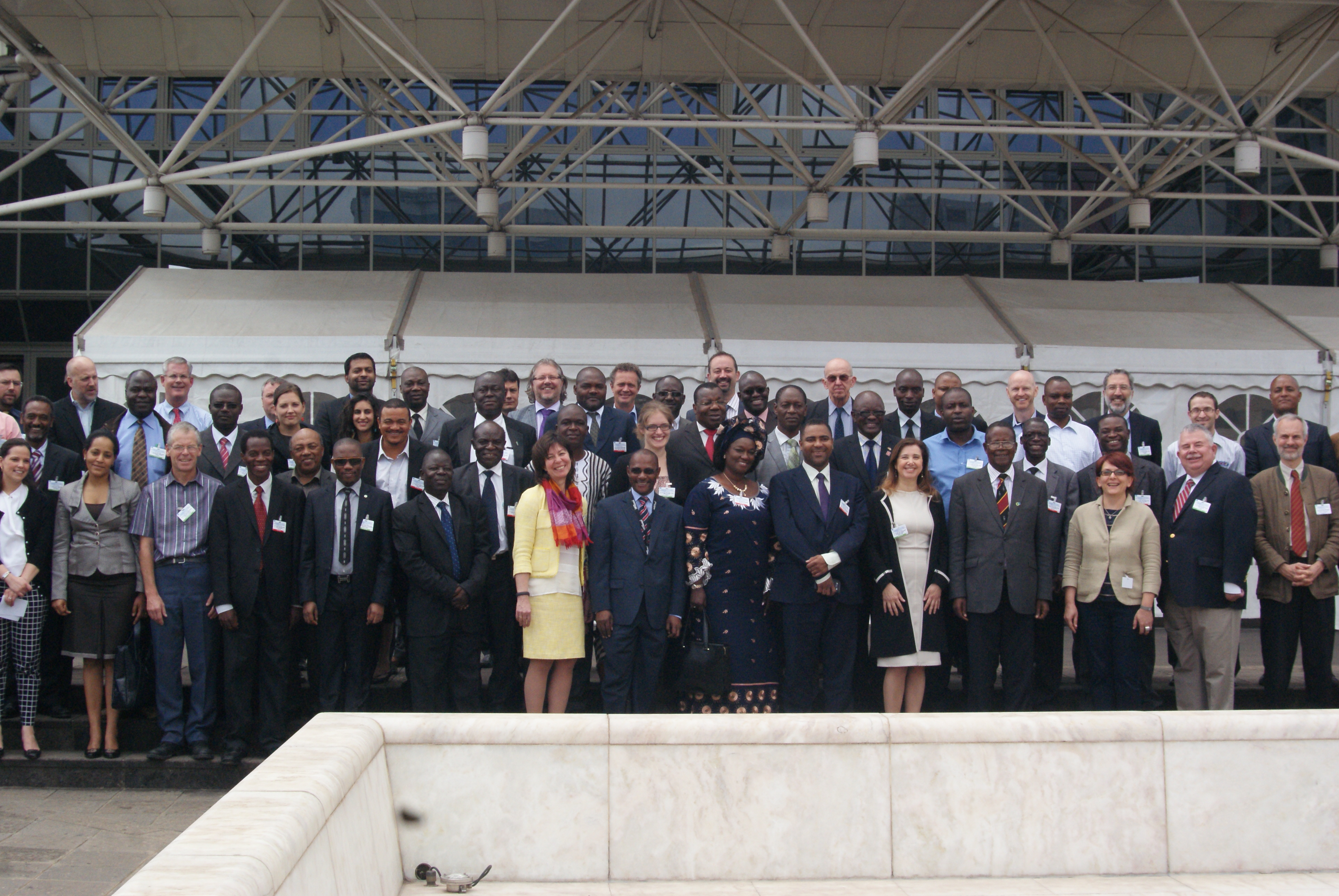


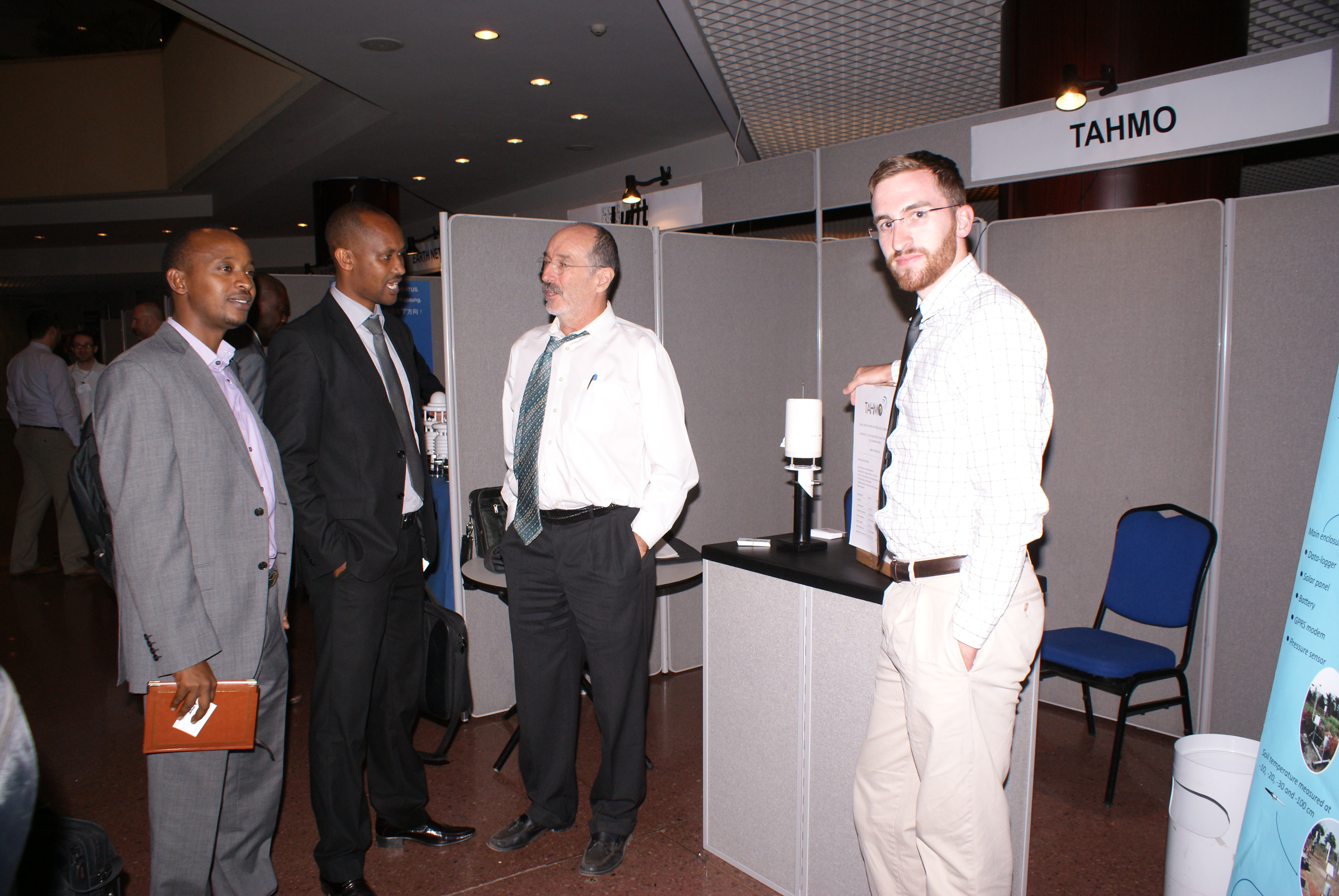





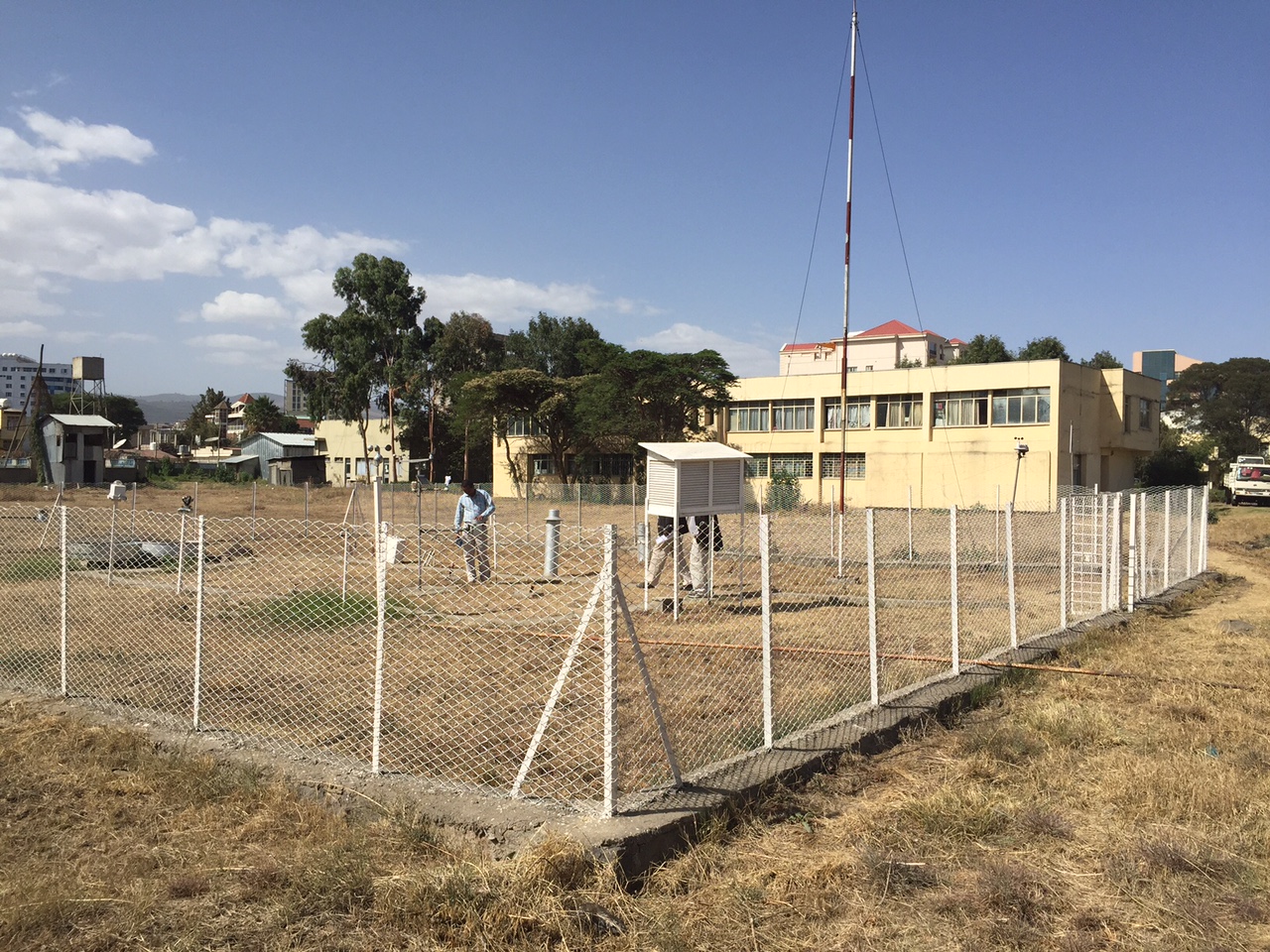
Reports
Knowledge Products
Climate and Weather Services Market Assessment - Revenue Generating Opportunities Through Tailored Weather Information Products
Participant List UNDP CIRDA Workshop "Towards Sustainability of Climate Information Services"
Presentation
Group 1 CIRDA Workshop "Towards Sustainability of Climate Information Services
CIRDAUNDP CIRDA Workshop "Towards Sustainability of Climate Information Services"
AFDB- UNDP CIRDA Workshop "Towards Sustainability of Climate Information Services
BRL UNDP CIRDA Workshop "Towards Sustainability of Climate Information Services"
Hydro- UNDP CIRDA Workshop "Towards Sustainability of Climate Information Services"
NIMET- UNDP CIRDA Workshop "Towards Sustainability of Climate Information Services"
ASECNA NDP CIRDA Workshop "Towards Sustainability of Climate Information Services"
Burkina Faso UNDP CIRDA Workshop "Towards Sustainability of Climate Information Services"
Benin UNDP CIRDA Workshop "Towards Sustainability of Climate Information Services"
Sao Tome and Principe UNDP CIRDA Workshop "Towards Sustainability of Climate Information Services"
Kukua UNDP CIRDA Workshop "Towards Sustainability of Climate Information Services"
PICSA UNDP CIRDA Workshop "Towards Sustainability of Climate Information Services"
Tanzania UNDP CIRDA Workshop "Towards Sustainability of Climate Information Services"
Ethiopia UNDP CIRDA Workshop "Towards Sustainability for Climate Services
Uganda UNDP CIRDA Workshop "Towards Sustainability for Climate Services
Zambia Digitization UNDP CIRDA Workshop "Towards Sustainability for Climate Services"
IEDRO UNDP CIRDA Workshop "Towards Sustainability for Climate Services"
MT Data Rescue UNDP CIRDA Workshop "Towards Sustainability for Climate Information Services"
Malawi SCI/EWS Update UNDP CIRDA Workshop "Towards Sustainability for Climate Information Services"
Sierra Leone SCI/EWS Project Update UNDP CIRDA Workshop "Towards Sustainability for Climate Services"
Programme Related Events
Agenda UNDP CIRDA Workshop "Towards Sustainability for Climate Information Services"
Draft Agenda - Innovative Approaches to Weather and Climate Services in Africa
Reports and Publications of relevance to Country Teams
Communications Products
A New Vision for Weather and Climate Services in Africa
Applying Climate Information to Achieve the Sustainable Development Goals
Training & Tools
Climate Information and Early Warning Systems Communications Toolkit
Reports and Publications by country teams
Report on SCIEWS Projects’ Team Exposure Visit to the Philippines
CIRDA Sao Tome and Principe's Work on Developing an Early Warning System
Newsletter
Planning Meeting Presentations
CIRDA Workshop: Creating Value Added Weather and Climate Services through PPPs Logistic Note
CIRDA Workshop: Creating Value Added Weather and Climate Services through PPPs
CIRDA Workshop: Systems Approach to Designing, Implementing, and Utilizing Observing Networks Zambia Poster
CIRDA Workshop: Systems Approach to Designing, Implementing, and Utilizing Observing Networks Uganda Poster
CIRDA Workshop: Systems Approach to Designing, Implementing, and Utilizing Observing Networks Tanzania Poster
CIRDA Workshop: Systems Approach to Designing, Implementing, and Utilizing Observing Networks Sierra Leone Poster
CIRDA Workshop: Systems Approach to Designing, Implementing, and Utilizing Observing Networks Sao Tome and Principe Poster
CIRDA Workshop: Systems Approach to Designing, Implementing, and Utilizing Observing Networks Malawi Poster
CIRDA Workshop: Systems Approach to Designing, Implementing, and Utilizing Observing Networks Liberia Poster
CIRDA Workshop: Systems Approach to Designing, Implementing, and Utilizing Observing Networks Ethiopia Poster
CIRDA Workshop: Systems Approach to Designing, Implementing, and Utilizing Observing Networks Burkina Faso Poster
CIRDA Workshop: Systems Approach to Designing, Implementing, and Utilizing Observing Networks Benin Poster
CIRDA Workshop: Systems Approach to Designing, Implementing, and Utilizing Observing Networks- Participant List
CIRDA Workshop: Systems Approach to Designing, Implementing, and Utilizing Observing Networks- Presentation TAHMO
CIRDA Workshop: Systems Approach to Designing, Implementing, and Utilizing Observing Networks- Presentation KMS
CIRDA Workshop: Systems Approach to Designing, Implementing, and Utilizing Observing Networks- Novel Approaches Presentation
CIRDA Workshop: Systems Approach to Designing, Implementing, and Utilizing Observing Networks- Presentation Instruments Maintenance
CIRDA Workshop: Systems Approach to Designing, Implementing, and Utilizing Observing Networks- Presentation Data Quality
CIRDA Workshop: Systems Approach to Designing, Implementing, and Utilizing Observing Networks- Systems Approach Presentation
CIRDA Workshop: Systems Approach to Designing, Implementing, and Utilizing Observing Networks- Presentation ACRE
CIRDA Workshop: Systems Approach to Designing, Implementing, and Utilizing Observing Networks- Presentation Njaliwe Banda
CIRDA Workshop: Systems Approach to Designing, Implementing, and Utilizing Observing Networks- Presentation John Doherty
CIRDA Workshop: Systems Approach to Designing, Implementing, and Utilizing Observing Networks Presentation Alan Miller
CIRDA Workshop: Systems Approach to Designing, Implementing, and Utilizing Observing Networks- Presentation Jeremy Usher
CIRDA Workshop: Systems Approach to Designing, Implementing, and Utilizing Observing Networks- Presentation Bonizella Biagini
CIRDA Workshop: Systems Approach to Designing, Implementing, and Utilizing Observing Networks: Logistic Note
CIRDA Workshop: Systems Approach to Designing, Implementing, and Utilizing Observing Networks Agenda
Project Brief / Fact Sheet
Board Meeting Reports
Nairobi Round Table on Strengthening Development of Climate Information and Early Warning Systems- Event Report
Nairobi Round Table on Strengthening Development of Climate Information and Early Warning Systems- BBC
Nairobi Round Table on Strengthening Development of Climate Information and Early Warning Systems- CCAFS
Nairobi Round Table on Strengthening Development of Climate Information and Early Warning Systems- UNEP
Nairobi Round Table on Strengthening Development of Climate Information and Early Warning Systems- ISDR
Nairobi Round Table on Strengthening Development of Climate Information and Early Warning Systems- NDMA
Nairobi Round Table on Strengthening Development of Climate Information and Early Warning Systems- ICPAC
Nairobi Round Table on Strengthening Development of Climate Information and Early Warning Systems- KMS
Nairobi Round Table on Strengthening Development of Climate Information and Early Warning Systems- AFDB
Nairobi Round Table on Strengthening Development of Climate Information and Early Warning Systems- WMO
Roundtable on Strengthening Development of Weather, Climate and Hydrology Related Early Warning Systems in Africa
ProDocs
Launch Workshop CIRDA
The Multi-Country Programme will support the following countries in Africa use climate information as a key tool in long term planning fundamental for economic development.
- Benin
- Burkina Faso
- Ethiopia
- The Gambia
- Liberia
- Malawi
- Sao Tome and Principe
- Sierra Leone
- Tanzania
- Uganda
- Zambia
The Programme will strengthen the capacity of these countries and the region to develop and operate modern climate information and early warning systems by making available technical assistance and provide access to new technologies. Countries will also benefit from regional coordination and a knowledge sharing platform.
For up to date information on the CIRDA Programme and to engage in our ongoing discussions, make sure to check out our blog: http://undp-cirda.blogspot.com/
For a brief snapshot of the Programme, download the CIRDA Fact Sheet.
Bonizella Biagini
 Dr. Bonizella (Boni) Biagini currently manages the UNDP’s Programme on Climate Information for Resilient Development in Africa (CIRDA).
Dr. Bonizella (Boni) Biagini currently manages the UNDP’s Programme on Climate Information for Resilient Development in Africa (CIRDA).
Prior to joining UNDP in 2014, Dr. Biagini worked at the Global Environment Facility (GEF) for 12 years, leading the creation and development of the GEF Adaptation program and project portfolio. She was the senior official responsible for mobilizing resources for the first two dedicated adaptation funds: the Least Developed Country Fund (LDCF) and the Special Climate Change Fund (SCCF), which together have received donor support of $1.5 billion. Before joining the GEF, Dr. Biagini worked at several NGOs including the Climate, Energy and Pollution Program at the World Resources Institute and the international office of Legambiente, a leading Italian environmental research organization.
A physicist by training, Dr. Biagini has worked on climate change and other global environmental issues for 25 years in Europe, the United States, Africa, Asia, and several small island states. In addition to her technical skills, her background encompasses an unusual combination of operational experience on the ground and high-level participation in international environmental meetings including the Earth Summit and the United Nations Framework Convention on Climate Change.
Learn more about Dr. Biagini's work with the GEF Least Developed Countries Fund (LDCF) and the Special Climate Change Fund (SCCF) in the May 2016 publication "Time to Adapt: Insights from the GEF's Experience in Adaptation to Climate Change." Dr. Biagini is also a contributor to the IPCC Third and Fourth Assessment Reports on Impacts, Adaptation and Vulnerability, and the author of numerous publications on climate change science and policy, including the report “Confronting Climate Change, Economic Priorities and Climate Protection in Developing Nations.” (Biagini, 2000). She is the lead author of three recent articles documenting experiences resulting from climate change adaptation projects: “Engaging the Private Sector in Adaptation to Climate Change in Developing Countries” (Biagini, Miller, 2013), “A Typology of Adaptation Actions: A Global Look at Climate Adaptation Actions Financed Through the Global Environment Facility” (Biagini, Bierbaum, Stults, Dobardzic, McNeeley, 2014); and “Technology Transfer for Adaptation” (Biagini, Kuhl, Sims Gallagher, Ortiz, 2014). (Photo Courtesy Margherita Mirabella)
Climate Data Digitization 
Overview
At the request of the governments of The Gambia, Malawi, Sierra Leone, Tanzania, Uganda and Zambia, the UNDP Programme on Climate Information for Resilient Development in Africa (CIRDA) is taking steps to assist in the preservation of historic climate data in these six African Least Developed Countries.
In its initial phase of support, two experts were commissioned by the CIRDA Programme to meet with National Hydro-Meteorological Services (NHMS) to provide guidance on digitization efforts and create a plan to capture digital records, particularly data used to manage climate impacts on agriculture, fishing and floods. With new training support, three countries are now scaling up efforts to capture historic records and digitize tens of thousands of pages of historic climate archives.
Types of Climate Data
Climate data generally falls into two categories: historical data and data from recent and current observations.
While most people understand the importance of current and recent climate data, fewer appreciate the equal importance of historical climate data. Historical data allow one to establish long-term trends, which in turn helps us understand and better plan for future changes in climate. They also help in developing and refining climate models and seasonal forecasts, as well as provide the foundational datasets used for adaptation studies at local, national and regional scales.
Climate models are mathematical representations of the interactions between the atmosphere, oceans, land surface, ice and the sun. Once a climate model is developed, it has to be tested to find out if it works. And since we can’t wait for 30 years to see if a model is any good or not, the models have to be tested against the past in a process that is called “hindcasting” that rely on historical observations. The simple assumption of hindcasting is that if a model can correctly predict current trends from a starting point somewhere in the past, one can expect it to predict what might happen in the future.
History of Climate Data
Meteorological data observations in most African countries date back to the early 19th Century (for example, in Tanzania the first meteorological observation was made along the coast in 1850). Once recorded on paper, the observations are kept in various formats in data archives usually located at meteorological agency headquarters or even still at the stations where the measurements were originally taken. But this historical data is recorded largely on paper and, depending on the age of the paper and the condition of the archives, some of the data is unreadable or is wearing out at dramatic rates, due to handwritten ink that fades over time.
Initial Needs Assessment
During an initial needs assessment, only Malawi reported having partial access to digitized historic data, with other countries often reporting no central digital archive of these data existing. One reason for this is that historic climate data sets are often held by other agencies aside from the NHMS. Alternative agencies holding historic data sets often include the Ministries of Agriculture, Water, Transport and Education.
Why Digitization is Important
Climate data is an essential ingredient needed to develop weather/climate-based early warning systems and a cornerstone for resilience building efforts. It not only allows us to monitor adverse impacts across development sectors, populations and ecosystems, but it also helps countries to prepare for and adapt to the realities of climate change. This information can be analyzed and applied to protect development gains and aid in the achievement of National Adaptation Plan goals. It is also an essential ingredient in creating more accurate forecasts that can be used to track storms, protect lives and build more resilient livelihoods. Unfortunately, in many parts of sub-Saharan Africa, these important data – often recorded with pen and paper – is being lost at a remarkable rate. Civil War, material decay and the sands of time are literally erasing the historical record of climate in the region.
The Strategy
National digitization strategies depend on a number of factors, including where and how data is stored, legal frameworks, in-house capacity, budgets, and equipment. Generally speaking, and often utilizing external funding, governments electronically capture paper records into a database with the first step being to record digital images of the data using a scanner or digital camera. This ensures that a digital copy of the record is preserved and can be be shared. However, the data itself is not yet in a digital form where it can be used to make calculations or for computational analyses. This requires either manually keying the records into a digital database, using software such as ClimSoft or Excel, or using automatic character recognition software to read, analyze and warehouse the new digital archive. Each variable and data set is important for improved weather forecasting and historical climate tracking, with different variables being used in different applications e.g. wind speed, humidity, temperature and incident radiation all important to calculate evaporation which is used model hydrological flows and crop development. An example of some of the main data useful for climate applications are given below:
Top Level Data Sets 
- Rainfall
- Temperatures
- Wind speed and direction
- Humidity
- Sunshine duration
- Incident solar radiation
- River Discharge
- Salinity
- Surface Water levels
Resources and Further Reading
- Why we need to save Africa’s historical climate data
- Digging For Data
- RFP: Training Support For Data Rescue and Digitization for the Gambia, Zambia and Malawi
- Data Rescue Country Resource Needs Estimates
- Guidelines on Climate Data Rescue - World Meteorological Organization
- Rescue and Digitization of Climate Data by Extraction from ...
- West Africa Climate Data Rescue and Digitization Facility The African ...
- International Environmental Data Rescue Organization - Home Page
- The Quest to Scan Millions of Weather Records - The Atlantic
Images
From top to botton: Historic records in The Gambia, where the archive is not in a good state, but recent records are intact; handheld data recue efforts in Uganda; and the Tanzania Meteorological Department's historic archive.
Programme Outputs
UNDP's CIRDA Programme provides support to 11 vulnerable countries African countries in their efforts to enhance their capacity to collect, analyze and disseminate climate information as a tool in adaptation planning. It does so by providing expert technical advice, promoting regional cooperation efforts, and capacity building.The support provided by the CIRDA Programme is in addition to each countries efforts to implement individual national climate information/early warning projects.
Click below for the project's terminal evaluation and completion reports
Click below to learn about some recent on the ground achievements:
Implementation of the CIRDA Programme is carried out under the general guidance of a Project Board composed of senior-level representatives from UNDP-GEF, WMO, UN-SPIDER, and representatives from 3 UNDP Country Offices.
The Project Board is the strategic decision-making body of the project, providing overall guidance and direction to the CIRDA Programme Manager.
IV Board Meeting 2018
A CIRDA Project Board Meeting was held 22 February 2018.
Click here for Board Presentations
III Board Meeting- 2016/17
A CIRDA Project Board Meeting was held in 16 February, 2017. The meeting presented the 2017 AWP as well as the Programme's milestones for 2016.
Click here for Board Meeting Minutes
Click here for Board Meeting Presentation
Click here for UNDP CIRDA 2016 Milestones
II Board Meeting- 2015
A CIRDA Project Board Meeting was held in Kampala, Uganda on March 5, 2015. The meeting was held to present the Programme's 2015 Annual Work Plan and Budget, both were approved by all board members.
Click here for Board Meeting Minutes
Click here for the Board Meeting Presentation
I Board Meeting- 2014
The first Project Board Meeting was held on July 8, 2014. The meeting's objective was the presentation of CIRDA's Annual Work Plan and Budget, both which were unanimously approved.
Click Here for the Board Meeting Minutes
Click Here for the Board Meeting Presentation
Click here for the project's terminal evaluation and completion report
'Towards Sustainability of Climate Information Services' 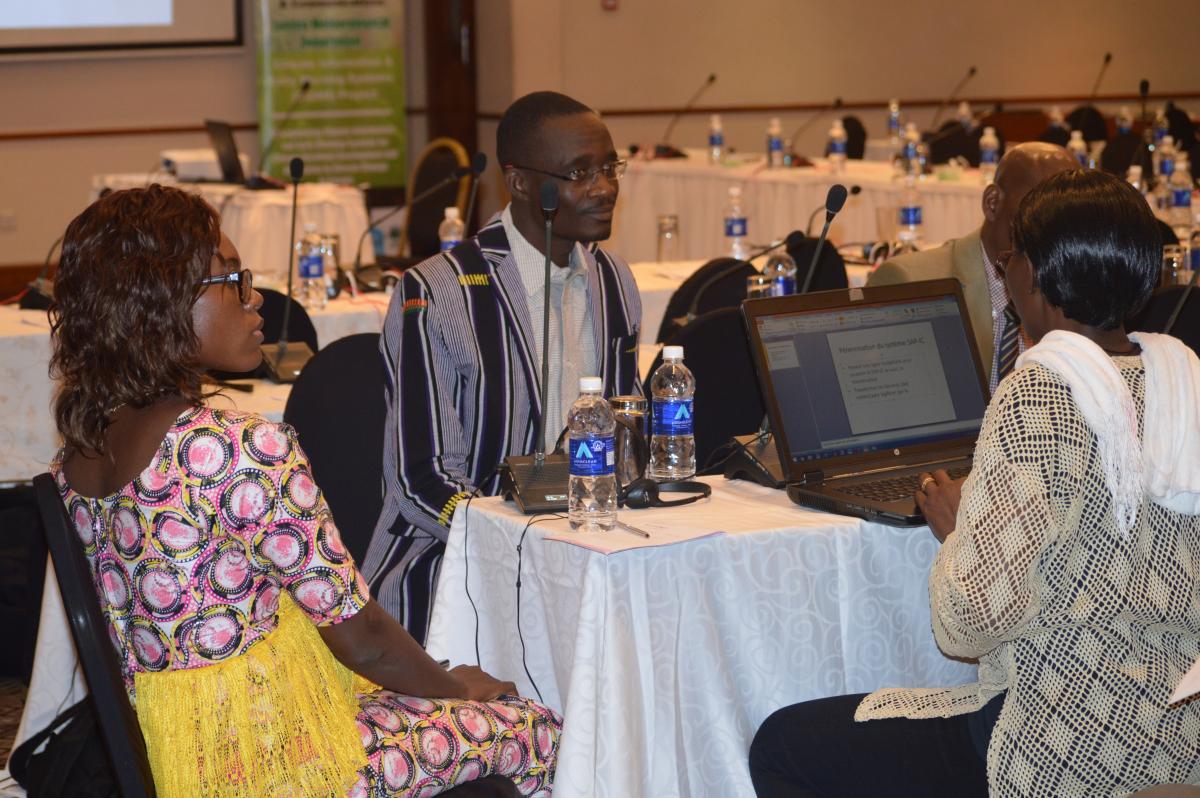
Achievements, Impacts, Lessons Learned and Next Steps for Climate Information Projects
29 November- 1 December, 2017, Lusaka Zambia
Information is power. With improved weather and climate information, nations are able to make climate-smart decisions on everything from agriculture to energy to natural resource conservation while vulnerable communities are be able to protect themselves when bad and unpredictable weather hits. With this in in mind, UNDP been collaborating with countries in strengthening their capacities to collect reliable climate information and to communicate effectively to enhance community and economic resilience to a changing climate. The UNDP Multi Country Programme on Climate Information for Resilient Development in Africa (CIRDA) has been working with 11 African countries for 5 years in meeting this objective by deploying world-leading experts on hydrology, new technologies, meteorology and public-private partnerships and helping national meteorological services establish the networks, partnerships and capacities needed provide climate information in a manner that meets the needs of vulnerable communites and main economic sectors.
This past November, UNDP and the Govenment of Zambia held a regional workshop with representatives from Benin, Burkina Faso, Ethiopia, the Gambia, Liberia, Malawi, Sao Tome and Principe, Sierra Leone, Tanzania, Uganda aa as they begin to develop their plans to ensure long-term sustainability of the investments made in the in the framework of national GEF- LDCF funded projects aimed at strengthening national climate information and early warning systems (SCI/EWS). The workshop focused on the achievements made by each country project including the establishment of national standard operating procedures for early warnings, data rescue of important historical data, expansion of observation networks, enhanced national capacities in forecasting and administrating data and in some cases consolidating weather and climate data and making it available online to help users better assess climate risks. Through discussing achievements and lessons learned, the workshop was able to work with countries to address common concerns and issues as projects move forward with national resources and efforts.
The workshop provided examples of regional and national African networks that have achived a sound level of sustainability such as ASECNA and the Nigerian Meteorological Service (NIMET) and projects that have looked to innovative methods to disseminate climate information for decision making such as PICSA. Participation from the African Development Bank, the World Bank,and UNDP also provided discussion on lessons learned through its various portfolio of projects including a new approach that needs to be taken that goes beyond just investing in equipment but moving towards providing climate information services that are economically sustainable, country appropriate and in turn generate true resilience to climate change.
Workshop Presentations
- UNDP CIRDA Programme - Bonizella Biagini
- Liberia SCI/EWS Project Update
- Zambia SCI/EWS Project Update
- Sierra Leone SCI/EWS Project Update
- Malawi SCI/EWS Project Update
- Introduction to Data Rescue Efforts- Mark Tadross
- IEDRO: Historical Climate Data Rescue and Digitization Efforts in Africa- Martin Mukhondia
- ZMD: Climate Data Rescue in Zambia- Martin Swasa
- Uganda SCI/EWS Project Update
- Ethiopia SCI/EWS Project Update
- Tanzania SCI/EWS Project Update
- PICSA- Graham Clarkson
- Kukua- Penelope Cabot
- Sao Tome and Principe SCI/EWS Project Update
- Benin SCI/EWS Project Update
- Burkina Faso SCI/EWS Project Update
- ASECNA- Mahfoudh Moctar
- NIMET- Sani Abubakar Mashi
- They Hydro in Hydromet- Joost Hoedjes
- Long Term Agreement with BRL for hydro-modeling- Marie Christine Germain
- Lessons Learned African Development Bank- Justus Kabyerma
- Lessons Learned UNDP CIRDA- Bonizella Biagini
Workgroup Activity Results
Group 1: Benin, Burkina Faso, Sao Tome and Principe
Group 2: Malawi, Sierra Leone, Liberia
Group 3: Tanzania, Uganda, Ethiopia, Zambia
Workshop Minutes
‘The Last Mile’

Saving lives, improving livelihoods and increasing resiliency with tailored weather information services
for a changing climate
15-17 March, 2016, Livingstone, Zambia
Climate information and early warning systems can save lives, improve livelihoods and build resiliency across Africa. In order to seize this opportunity, timely, accurate and actionable weather and climate information must be delivered from data collection and creation sources across the “Last Mile” to uninformed and vulnerable end-users.
In this innovation-driven multi-country workshop, experts on cutting-edge technology, communications, public-private partnerships, meteorology and sustainable development will come together to explore new pathways to move from the collection of data to its application, with the end goal of creating actionable recommendations that UNDP-supported climate-information programmes can leverage to impact lives and build sustainability. For this to happen, national weather information services should not only have access to modern weather observation technologies and forecast information, but they must also be able to communicate and apply the content derived from these systems to those in need.
Interactive sessions will cover diverse topics beginning with the sharing of best practices on the application of weather data in the field, followed by sessions and panel discussions that explore important topics that will guide our journey toward the “Last Mile.” These include defining roles and responsibilities of public and private information goods, establishing key partnerships required for the design, development and potential commercialization of “Last Mile” products and services, and developing integrated communications strategies. A notable side event, The Climate Action Hackathon, will also take place in parallel to generate ideas for Last Mile products and services from the application development community and local media.
Ample time will be provided for interactive discussion between project managers, implementing agency officials and the Last Mile application development community in order to more deeply explore the development of workshop ideas within each national project.
Main Goals
- Understand challenges and opportunities for UNDP-supported Climate Information and Early Warning Systems projects as we journey toward the last mile
- Share best practices, innovative technologies and cutting-edge methodologies
- Define actionable recommendations to cover the “Last Mile”
- Build relationships and partnerships
- Ensure long-term sustainability
- Embrace innovation
- Connect, listen, explore
Resources
- Communications Toolkit
- Communications Strategy Template
- Press Release - UNDP Last Mile Workshop in Livingstone to Strengthen Climate Information Systems Across 11 Sub-Saharan African Nations
- Climate and Weather Services Market Assessment - Revenue Generating Opportunities Through Tailored Weather Information Products
Presentations - Day 1
- Bonizella Biagini - The Last Mile
- Anthony Mills - Defining the Last Mile
- Pradeep Kurukulasuriya - Adaptation
- John Snow - Opening Remarks
- Greg Benchwick - Integrated Communications Strategies
- Kunda Mwila - CI/EWS Communications Strategy in Zambia
- Arnaud Zannou - Standard Operating Procedure in Benin
- Caelainn Barr - Innovating How We Report on Climate Change
- Joost Hoedjes - Geonetcast
- Edson Nkonde - Last Mile Building Blocks ZMD
- Ari Davidov - Earth Networks
- Cristoph Neudhart - Ubimet
- Andrew Kruczkiewicz - ENACTS
Presentations - Day 2
- David McAfee - Last Mile Application Development and Distribution
- Hanneke Schuurmans - Flash Flood Forecasting App
- Anthony Mills - Main Findings of the CIRDA Market Assessment
- Robert Kintu - The Commercial Market Opportunity of Weather and Climate Services in Africa
- Stewart Collis - aWhere 'The Power of Agriculture Intelligence'
- Alan Miller - Building the Last Mile with Public-Private Partnerships
- Beniah Nyakanda - EcoNet's Experiences in Implementing Weather Indexed Insurance in Zimbabwe
- Alfei Daniel and Pascal Okello - Lessons Learned from Visit to the Phillippines
- Sharon Onyango - ACRE Africa
- Jeanne Coulibaly - Lessons Learned From the GFCS On Disseminating CIS to Smallholder Farmers in Malawi and Tanzania
- Babatunde Abidoye - UNDP Impact Evaluation Baseline Survey
- Burkina Faso - Last Mile Service Target and Messages
Country Presentations
Mobile APP
Climate Action Hackathon
Big Ideas, Visionaries, Amateur Forecasters and Computer Developers Welcome at UNDP Climate Information for a Resilient Africa Event. Learn More
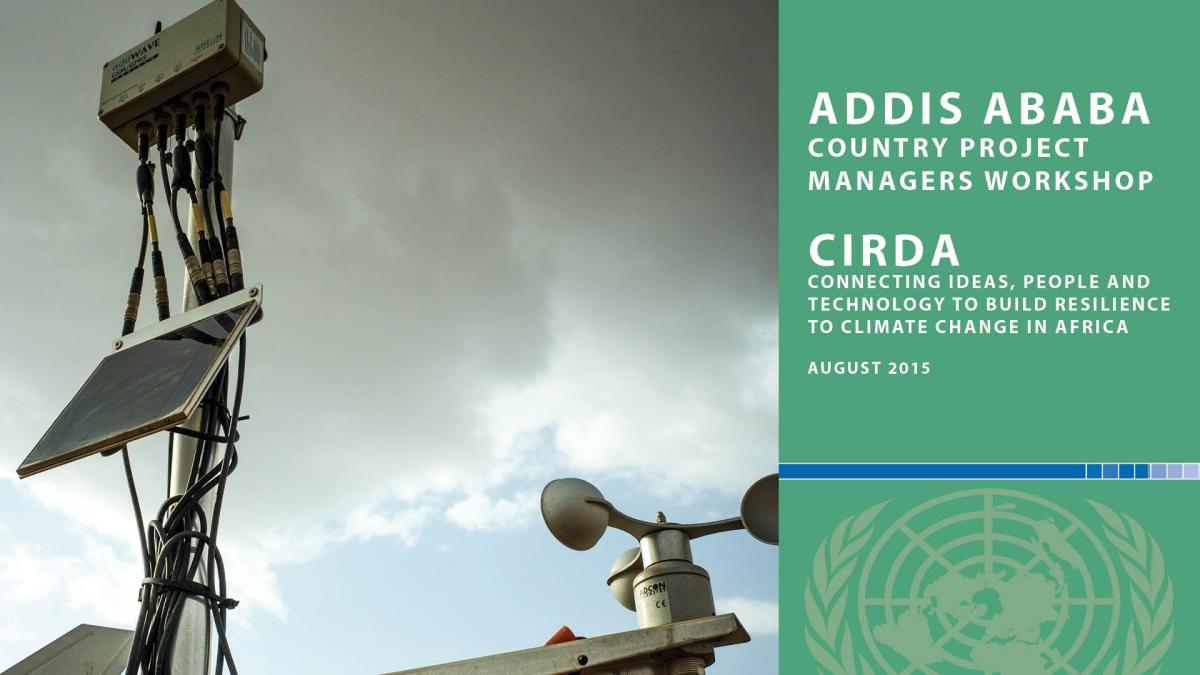 25-27 August, 2015, Addis Ababa, Ethiopia
25-27 August, 2015, Addis Ababa, Ethiopia 
UNDP CIRDA Country Project Managers Workshop
This workshop hosted by the UNDP’s Programme on Climate Information for Resilient Development in Africa (CIRDA) brings together country project managers, technical advisories, meteorologists and hydrologists, and experts on public-private partnerships, communications and development to explore innovative approaches and new technologies to strengthen and sustain climate information and early warning systems in Africa.
The meeting offers an opportunity for collaboration and knowledge sharing between in-country leadership teams from 11 African nations. Sessions focus on technical support mission planning, reports from the Strengthening National Climate Information/Early Warning System (CI/EWS) Projects, public-private partnership market studies, support for the procurement of Hydro-Meteorological technology, and covering the “Last Mile.”
Unique country clinics bring country project managers together with experts from the CIRDA Programme to discuss innovative climate and weather information
technologies, new approaches and cutting-edge applications of climate data.
The meeting is hosted at the UNDP Regional Service Center for Africa (RSC). Powerpoint presentations and videos from the event will be shared on this page as they become available.
Links
Presentations
Introductions, Meeting Goals and Strategies
- Bonizella Biagini High-Level Introduction
- John Snow Introduction - Framing Workshop Goals
- Anthony Mills - Market Study on Public-Private Partnerships
- John Snow - Procurement Plans and Strategies
- Procurement Support Unit
- Zambia LTA Experience
- Anthony Mills - The Last Mile
Reports from Strengthening National Climate Information/ Early Warning System (CI/EWS) Projects
Day 1
Day 2
Videos
3 March, 2015, Kampala, Uganda- Workshop on Creating Value Added Weather and Climate Services through Innovative Public Private Partnerships
The UNDP-CIRDA Programme and the Government of Uganda held a training workshop at the Golf Course Hotel in Kampala aimed at building sustainable climate change adaptation and economic development plans. The workshop will support National Hydrological and Meteorological Services (NHMS) in Africa create value added weather and climate services by engaging with the private sector and developing innovative public private partnerships.
The workshop brought together government representatives, the private sector, international experts, representatives from the World Meteorological Organization (WMO) and UNDP. Discussions were held with representatives from agriculture, financial, aviation and telecommunication sectors on how to meet their needs and best engage them through the use of new technologies to communicate timely and reliable climate information to support national development.
Long term financial sustainability of national weather and climate services was a key topic addressed during this two day event. As governments deal with budget constraints on many fronts, limited budget resources are a challenge for NHMS in their attempts meet the information needs of local populations. Conversations were centered on analyzing the potential for generating revenue to support the sustainability of weather and climate services, including opportunities for collaboration with mobile phone companies and establishing succesful public private partnerships. These discussions led to the development of country action plans to provide a pathway forward in CIRDA's 11 partner countries.
Action Plans
- Benin
- Burkina Faso
- Ethiopia
- the Gambia
- Liberia
- Malawi
- Sao Tome and Principe
- Sierra Leone
- Tanzania
- Uganda
- Zambia
Presentations:
Day 1
- CIRDA Overview, Bonizella Biagini
- Looking Back: Innovative Technologies, Jeremy Usher
- Looking Forward: Phillippines Case Study, Sebastian Glink
- Looking Forward: Technologies as a Foundation to PPPs, Alan Miller
- Commercialization of Weather and Climate Services- South Africa, Ziyanda Majokweni
- Commercialization of Weather and Climate Services- KNMI, Menno Bom
- Commercialization of Weather and Climate Services- Uganda, Michael Nkalubo
- Using PPPs in NHMS, Philippines- Sebastian Glink
- Using PPPs to Accelerate NHMS Commercialization Efforts - Ari Davidov
- Catalyzing private sector investment- Anthony Mills
Day 2
- Partnering with Mobile Telephone Companies: Telcel Faso- Moumouni Sawadogo
- Partnering with Mobile Telephone Companies from a Regulatory Point of View: Uganda Communications Comisssion- Patrick Mwesigwa
- Partnering with Mobile Telephone Companies: Vodafone Global- David Kuguru
- 3-2-1 Service: Human Network International- David McAfee
- Uganda Charter Health Net- Patrick Kibaya
- TAHMO's Sister School Programme- Zach Dunn
- Innovative Initiatives using Mobile Platforms- David Kuguru
- Aviation and Transport Perspective: ASECNA- Moise Betole Ada
- Aviation and Transport Perspective: BPS- Nick Grenfell
- Aviaton and Transport: South African Airways- Willie Saayman
- Banking Perspective: Stanbic Bank- Mwamba Musambo
- Insurance and Banking Opportunities to Engage: ClimateWise- Katharine Thoday
CIRDA Partner Country Presentations
14 October, 2014, Dar es Salaam, Tanzania- Workshop on a Systems Approach to Designing, Implementing, and Utilizing Observing Networks
UNDP’s Multi Country Support Programme to Strengthen Climate Information and Resilience Development in Africa (CIRDA), in close collaboration with the UNDP Country Office in Tanzania, held a training workshop on a Systems Approach to Designing, Implementing, and Utilizing Observing Networks from 14 to16 October, 2014, at the Hotel White Sands in Dar es Salaam, Tanzania.
The workshop provided training to Directors of the National Meteorology and Hydrology Services (NHMS), Directors of the NHMS Observation Networks, CIRDA country managers, and other interested CIRDA partners, by introducing a systems approach to the design, implementation, and utilization of observing networks. Training sessions were led by international professionals in the fields of meteorology, surface observations, data quality, private sector engagement, and climate technologies. The event also provided an opportunity for country representatves to present their progress on implementing local and national early warning systems (EWS) with the support of the Programme. The workshop discussion resulted in the development of country posters that detailed national observing networks.
Click here for the agenda workshop
Links to Presentations:
- Introduction to CIRDA- Bonizella Biagini
- Importance of Data from Observing Networks in a World Undergoing Climate Change- Jeremy Usher
- Importance of Data from Observing Networks in a World Undergoing Climate Change: Business Case Approach- Alan Miller
- Benefits of Partnering with the Private Sector: Success Stories in Building Infrastructures- John Doherty (Earth Networks)
- Importance of Data from Observing Network: Partnering with Telecommunication Companies- Njaliwe Banda (Access)
- The Importance of Weather and Climate Data: ACRE’s Agricultural Insurance Perspective- Wairimu Muthike (ACRE)
- Introduction to Systems Approach and Backwards Planning- John Snow
- Data Quality Assurance and Control Methods for Weather Observing Networks- Cindy Luttrell
- Instruments, Maintenance, Calibration- Scott Richardson
- Novel Observing Approaches: New and Emerging Technologies- John Snow
- Expansion of Observation Networks in East Africa: Challenges and Opportunities- David Mburu
- Trans-African Hydro Meteorological Observatory: Creating African Climate Synergy- John Selker (TAHMO)
Click here for a fact sheet on Sao Tome and Principe's EWS
Country posters detailing national observing networks
- Benin
- Burkina Faso
- Ethiopia
- Liberia
- Malawi
- Sao Tome and Principe
- Sierra Leone
- Tanzania
- Uganda
- Zambia
20 May, 2014, Nairobi, Kenya- Roundtable on Strengthening Development of Weather, Climate and Hydrology related Early Warning Systems in Africa
Development banks, intergovernmental agencies and meteorological services working in Africa to support the development of climate information and early warning systems across Africa met in Nairobi to communicate and raise awareness of ongoing and planned iniatives. This event is an example of the ongoing coordination between programmes and agencies to assure that all iniatives are in keeping with development and adaptation needs. Discussions served to highlight the complementary nature of regional activities directed at enhancing climate information systems.
CIRDA Programme Manager, Bonizella Biagini, presented the aims, objectives, actions and scope of the CIRDA Programme.
Presentations were also made by representatives from UNESCO, WMO, AFDB, Kenya's Metorological Service, ICPAC, NDMA, UNEP and the UN's International System for Disaster Reduction.
- UNESCO
- WMO
- African Development Bank (AFDB)
- Kenya Met
- ICPAC
- NDMA
- UN- International System for Disaster Reduction
- UNEP
- CCAFS
- BBC Media Action
For a full summary of the event, click here.
13 April, 2014, Addis Ababa, Ethiopia- Launch of the Multi Country Support Programme to Strengthen Climate Information Systems in Africa
Representatives from UNDP's GEF Unit met in Ethiopia on April 13-14 with high level representatives from Benin, Liberia, Malawi, Sierra Leone, Sao Tome and Principe, Tanzania, Uganda and Zambia to launch the Multi Country Support Programme to Strengthen Climate Information Systems in Africa. The Honorable Ministers of Environment from Uganda, Sao Tome and Principe as well as the Executive Chairperson of the Environment Protection Agency of Sierra Leone were present to celebrate the Programme's onset.
As a highlight to the workshop, an Expo with 13 meteorological companies and service providers was held to introduce government representatives to the cutting edge technologies available in the collection, processing and dissemination of climate information.
Links to Presentations
- Presentation 1. Pradeep Kurukulasuriya
- Presentation 2. Carolin Richter
- Presentation 3. Bonizella Biagini
- Presentation 4. Mostomi Maletjane
- Presentation 5. Margaret Mukahanana
- Presentation 6. Ermira Fida
- Presentation 7. John Snow
- Presentation 8. Mamadou Lamine Bah
- Presentation 9. Christopher Oludhe
- Presentation 10. Koumé Guy Marcel Bouafou
- Presentation 11. Getachew Abate
- Presentation 12. Alan Miller
- Presentation 13. Patrick Karani
- Presentation 14. Julie Arrighi
The CIRDA Programme is based in Addis Ababa, Ethiopia, and provides technical support and expertise to Strengthening Climate Information and Early Warning Systems Projects in 11 African least developed countries.
- Benin
- Burkina Faso
- Ethiopia
- The Gambia
- Liberia
- Malawi
- Sao Tome and Principe
- Sierra Leone
- Tanzania
- Uganda
- Zambia
CIRDA Blog
Video Playlist
Livefeed - Climate Action Hackathon - Leveraging Weather and Climate Data to Create Solutions for Adaptation
May 24, 2016, 18:30 (CEST) Bonn, Germany | Post questions on Twitter @unfccc_ccstudio
With obsolete or malfunctioning technologies, dozens of local languages, high-levels of illiteracy, and limited electricity and access to media, many vulnerable communities in Africa do not receive reliable weather reports, and only a few nations possess the ability to issue early warning messages and reach the “last mile.” In response to this challenge, this past March in Zambia the UNDP’s CIRDA Programme launched a Climate Action Hackathon. The event engaged young African developers to create innovative software focused on communicating directly with end users. The livestream of the side event at the May Bonn Climate Change Conference will present a practical demonstration of the innovative solutions that were developed by the hackers to provide weather information for specific end users, including farmers, vulnerable communities and policymakers to inform adaptation actions. The side event will also introduce the results of a Market Study on revenue generating opportunities for weather services in Africa.
CIRDA and CI/EWS Projects In The News
Tanzania: Free Mobile Phones to Boost Awareness On Climate, Weather
All Africa
Wednesday 19 April 2017
The government has embarked on issuance of free mobile phones to local farmers to facilitate direct channeling of information on climate, weather and related disasters to peasants for increased awareness. The initiative has been hatched under the 'Strengthen Climate Information and early Warning System,' the programme that the Disaster Management Department in the Prime Minister's Office (PMO) is executing. Read more
...The Uganda National Meteorological Authority (UNMA) and the United Nations Development Programme (UNDP) have joined hands to strengthen climate information and early-warning systems [in Uganda]. Their initiative would, among other things, detect lightning and inform people to move away from known lighting hotspots... Read More
Procurement Assistance
As part of the CIRDA Programme’s objective to enhance national capacities in monitoring and forecasting extreme weather, hydrology and climate change, UNDP-GEF and UNDP's Procurement Support Office (PSO) have established a collaboration framework under the CIRDA Programme to support partner countries in the procurement of weather, climate and hydrological monitoring infrastructure and new technologies.
Procurement support includes: a) reviewing technical specifications and Terms of Refrence (ToRs) developed by requisitioning units & projects; b) feedback and recommendations pertaining the suitability of technical specifications/requirements to conduct procurement processes; c) market research and sourcing activities to ensure awareness and interest of relevant supplier base; d) review of procurement documents submitted by requisitioning units/projects; e) assistance to Country Offices (COs) & projects with procurement related clarifications during tender processes; f) reviewing submissions to contract review committees and provide recommendations to COs and projects; g) assistance and backstopping support to ensure satisfactory completion of vendor’s contractual obligations and; h) developing managing and maintaining, suitable procurement tools, systems, mechanisms, agreements and contracts to ensure reliable on-going supply chain mechanisms.
In collaboration with CIRDA experts on alternative technologies, the PSO Unit has developed a fact sheet to serve as a support guide to partner countries in their efforts to procure new technologies.
The PSO Unit has also created an online platform with various resources to help country offices and partners. This information is available at the following websites:
UNDP-GEF Procurement Tools & Knowledge Sharing
Long Term Agreements (LTAs) and their corresponding Standard Operation Procedures (SOP)
For any questions please feel free to contact Mettelena Herring at mettelena.herring@undp.org
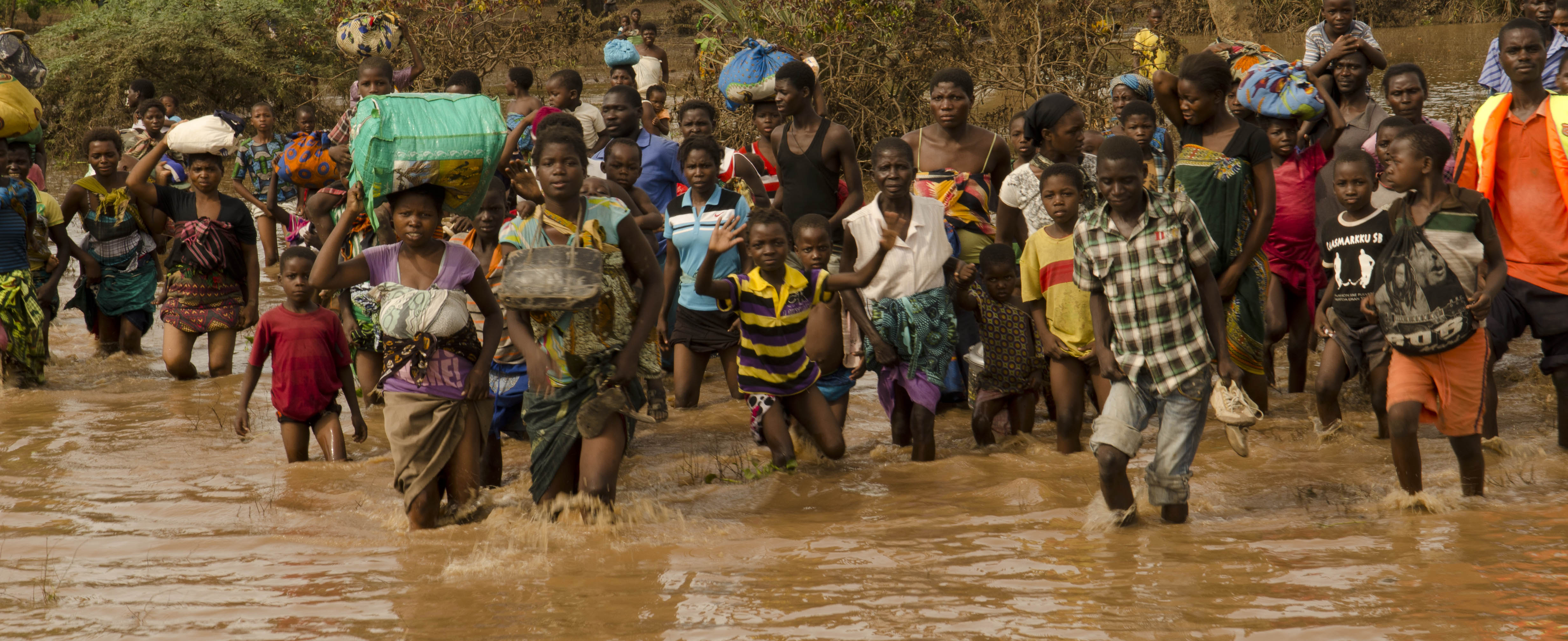
An Integrated Water Resource Management Programme in the Maldives
The objective of this project is to ensure reliable and safe freshwater supply for Maldivian communities in a changing climate. As surface freshwater is generally lacking throughout the country, the key problems pertaining to freshwater security relate to the management of increasingly variable rainwater resources and increasingly saline and polluted groundwater. In order to reduce the aforementioned barriers to effective climate change adaptation in the water management sector, it is essential to reinforce the perspective of Integrated Water Resources Management (IWRM) on inhabited islands.
This will ensure that measures responding to additional, climate change-related risks (such as greater rainfall variability, unreliable recharge of aquifers, longer dry periods, and increasing damage to infrastructure from extreme weather events) are addressed in concert with a response to basic development problems (such as insufficient sewage and wastewater treatment, lack of environmental awareness, lack of water conservation, and lack of comprehensive stakeholder participation in the design and monitoring of water management schemes).

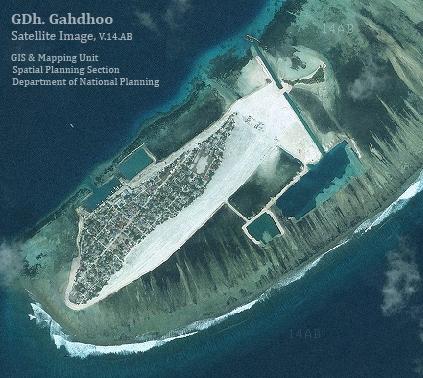
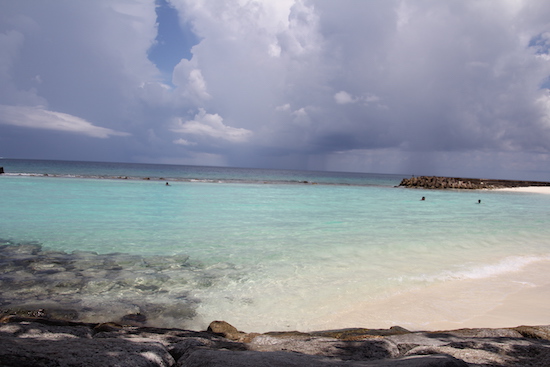
PIFs
Groundwater and freshwater are scarce resources in Maldives, due to the hydrogeology of the country. The freshwater aquifer lying beneath the islands is a shallow lens, 1 to 1.5m below the surface, and no more than a few meters thick. A critical determinant of availability is net rainfall recharge, which is becoming more variable in a changing climate. Over the last few years the National Disaster Management Center has transported potable water to many islands facing acute water shortages due to prolonged dry periods, costing over US$ 2 million every year.
Many freshwater aquifers are already stressed from over-extraction and face the risk of total depletion. This already precarious hydrological system is further aggravated by climate change-induced effects of sea level rise and flooding during extreme weather events, which increases saltwater intrusion into the freshwater lens. Salinization of groundwater is affecting the quality of life in the islands, as people depend on groundwater for washing, bathing and other non-potable uses. In addition, groundwater is stressed from the effects of flood- induced pollution, especially spillovers of septic tanks and spillage of human, animal and household waste during periods of heavy rainfall and inundation.
This initiative will increase the resilience of freshwater resources through an integrated management of ground- and freshwater resources in the islands of Mahibadhoo (Alifu Dhaalu Atoll), Ihavandhoo (Haa Alifu Atoll) and Gadhdhoo (Gaaf Dhaal Atoll). These three islands represent different geographical locations across the country, are densely populated and have a flat topography varying between 0-0.5 meters above sea level (MSL).
In order to reduce the barriers to effective climate change adaptation in the water management sector, it is essential to reinforce the perspective of Integrated Water Resources Management (IWRM) on inhabited islands. This will ensure that measures responding to additional, climate change-related risks (such as greater rainfall variability, unreliable recharge of aquifers, longer dry periods, and increasing damage to infrastructure from extreme weather events) are addressed in concert with a response to basic development problems (such as insufficient sewage and wastewater treatment, lack of environmental awareness, lack of water conservation, and lack of comprehensive stakeholder participation in the design and monitoring of water management schemes).
Through the rollout of an integrated water resource management programme in HA. Ihavandhoo, ADh. Mahibadhoo and GDh. Gadhdhoo, this project will ensure consistent, safe and equitable access of all island communities to safe freshwater in a changing climate. Through a targeted mix of investments, the project will address the effects of variable rainfall, extreme weather events, salinization and pollution of aquifers.
Component 1: Establishment of integrated, climate-resilient water supply and management systems
Establish artificial groundwater recharge systems (Output 1.1) and improve rainwater harvesting schemes (Output 1.2). Establish production and distribution system for desalinated water supply (Output 1.3) and improve existing wastewater management systems (Output 1.4).
Component 2: Increase participation in the development, allocation and monitoring of freshwater use in a changing climate
Community consultations (Output 2.1) and targeted training events (Output 2.2) on each island to strengthen local awareness and ownership of integrated, climate-resilient freshwater management.
Component 3: Replication and upscaling of climate-resilient freshwater management
Train technicians (Output 3.1) and create institutional mechanisms (Output 3.2) to integrate of adaptation into water management projects through an Integrated Water Resource Management (IWRM) framework. Develop and finance action plans on at least 4 additional islands to replicate integrated, climate-resilient freshwater management (Output 3.3).
Project monitoring and evaluation (M&E) will be in accordance with established UNDP procedures and will carried out by the Project team, verified by the MHE and the UNDP Country Office in Male. Dedicated support by the technical adaptation teams in the UNDP Asia-Pacific Regional Center and UNDP New York will be provided on a regular basis. A comprehensive Results Framework of the project will define success indicators for project implementation as well as the respective means of verification. A Monitoring and Evaluation (M&E) system for the project will be established, based on these indicators and means of verification. It is important to note that the Results Framework in Annex B, together with Output indicators, targets and means of verification, will be reconfirmed during the inception phase of the project. Any changes to the Results Framework require approval by the Project Board.
A Project Inception Workshop will be conducted within four months of project start up with the full project team, relevant government counterparts, co-financing partners, and UNDP. The Inception Workshop is crucial to building ownership for project results and to plan the first year annual work plan. A fundamental objective of the Inception Workshop will be to present the modalities of project implementation and execution, document mutual agreement for the proposed executive arrangements amongst stakeholders, and assist the project team to understand and take ownership of the project‟s goals and objectives. Another key objective of the Inception Workshop is to introduce the project team which will support the project during its implementation. An Inception Workshop Report will be prepared and shared with participants to formalize various agreements decided during the meeting.
A UNDP risk log will be regularly updated in intervals of no less than every six months in which critical risks to the project have been identified. Quarterly Progress Reports will be prepared by the Project team and verified by the Project Board. Annual Project Reports will be prepared to monitor progress made since project start and in particular for the previous reporting period. These annual reports include, but are not limited to, reporting on the following:
- Progress made toward project objective and project outcomes - each with indicators, baseline data and end-of-project targets (cumulative);
- Project outputs delivered per project Outcome (annual);
- Lessons learned/good practices;
- Annual expenditure reports;
- Reporting on project risk management.
Government authorities, members of the Project Board and UNDP staff will conduct regular field visits to project sites based on the agreed schedule in the project's Inception Report/Annual Work Plan to assess first hand project progress.
In terms of financial monitoring, the project team will provide UNDP with certified periodic financial statements. Audits on the project will follow UNDP finance regulations and rules and applicable audit policies. During project implementation, Annual Work Plans (AWPs) and Quarterly Work Plans (QWPs) will be used to refine project delivery targets and realign project work upon consultation and endorsement by the Project Board.
The project will undergo an independent Mid-Term Evaluation (MTE) at the mid- point of project implementation, which will determine progress being made toward the achievement of outcomes and identify course correction if needed. It will focus on the effectiveness, efficiency and timeliness of project implementation; highlight issues requiring decisions and actions; and present initial lessons learned about project design, implementation and management. Findings of this review will be incorporated as recommendations for the final half of the project‟s term. A summative terminal evaluation will be conducted 3 months before project closure.



